- Travel Advisories |
- Contact Us |
- MyTravelGov |

Find U.S. Embassies & Consulates
Travel.state.gov, congressional liaison, special issuance agency, u.s. passports, international travel, intercountry adoption, international parental child abduction, records and authentications, popular links, travel advisories, mytravelgov, stay connected, legal resources, legal information, info for u.s. law enforcement, replace or certify documents.
Before You Go
Learn About Your Destination
While Abroad
Emergencies
Share this page:
Travel Advisory July 23, 2024
India - level 2: exercise increased caution.
Updated to reflect information on the northeastern states.
Exercise increased caution in India due to crime and terrorism. Some areas have increased risk.
Do not travel to:
- The union territory of Jammu and Kashmir (except the eastern Ladakh region and its capital, Leh) due to terrorism and civil unrest .
- Within 10 km of the India-Pakistan border due to the potential for armed conflict .
- Portions of Central and East India due to terrorism.
- Manipur due to violence and crime .
Reconsider travel to:
- The northeastern states due to terrorism and violence .
Country Summary: Indian authorities report that rape is one of the fastest growing crimes in India. Violent crime, such as sexual assault, has happened at tourist sites and other locations.
Terrorists may attack with little or no warning. They target tourist locations, transportation hubs, markets/shopping malls, and government facilities.
The U.S. government has limited ability to provide emergency services to U.S. citizens in rural areas. These areas stretch from eastern Maharashtra and northern Telangana through western West Bengal. U.S. government employees must get special authorization to travel to these areas.
Read the country information page for additional information on travel to India.
Visit the CDC page for the latest Travel Health Information related to your travel.
If you decide to travel to India:
- Do not travel alone, particularly if you are a woman. Visit our website for Women Travelers .
- Review your personal security plans and remain alert to your surroundings.
- Enroll in the Smart Traveler Enrollment Program ( STEP ) to receive Alerts and make it easier to locate you in an emergency.
- Follow the Department of State on Facebook and Twitter .
- Review the Country Security Report for India.
- Prepare a contingency plan for emergency situations. Review the Traveler’s Checklist .
Union Territory of Jammu and Kashmir – Level 4: Do Not Travel
Terrorist attacks and violent civil unrest are possible in the union territory of Jammu and Kashmir. Do not travel to this state (with the exception of visits to the eastern Ladakh region and its capital, Leh). Violence happens sporadically in this area and is common along the Line of Control (LOC) between India and Pakistan. It also occurs in tourist spots in the Kashmir Valley: Srinagar, Gulmarg, and Pahalgam. The Indian government does not allow foreign tourists to visit certain areas along the LOC.
Visit our website for Travel to High-Risk Areas .
India-Pakistan Border – Level 4: Do Not Travel
India and Pakistan have a strong military presence on both sides of the border. The only official border crossing for non-citizens of India or Pakistan is in Punjab. It is between Attari, India, and Wagah, Pakistan. The border crossing is usually open, but check its current status before you travel. To enter Pakistan, you need a Pakistani visa. Only U.S. citizens residing in India may apply for a Pakistani visa in India. Otherwise , apply for a Pakistani visa in your home country before traveling to India
Portions of Central and East India – Level 4: Do Not Travel
Maoist extremist groups, or “Naxalites,” are active in a large area of India that spans from eastern Maharashtra and northern Telangana through western West Bengal. Attacks against officers of the Indian government continue to occur sporadically in the rural parts of Chhattisgarh and Jharkhand that border with Telangana, Andhra Pradesh, Maharashtra, Madhya Pradesh, Uttar Pradesh, Bihar, West Bengal, and Odisha. Southwest areas of Odisha are also affected. The Naxalites have carried out many terrorist attacks, targeting local police, paramilitary forces, and government officials.
Due to the fluid nature of the threat, U.S. government employees are required to obtain permission prior to traveling to most areas in the states of Bihar, Jharkhand, Chhattisgarh, West Bengal, Meghalaya, and Odisha. Permission is not required if employees are traveling only to the capital cities of these states.
U.S. government employees also need approval to travel to the eastern region of Maharashtra and the eastern region of Madhya Pradesh
Visit our website for Travel to High-Risk Areas .
Manipur - Level 4: Do Not Travel
Do not travel to Manipur due to the threat of violence and crime. Ongoing ethnic-based civil conflict has resulted in reports of extensive violence and community displacement. Attacks against Indian government targets occur on a regular basis. U.S. government employees traveling in India require prior approval before visiting Manipur.
Visit our website for Travel to High-Risk Areas .
Northeastern States – Level 3: Reconsider Travel
Ethnic insurgent groups occasionally commit acts of violence in parts of the northeast. These incidents include bombings of buses, trains, rail lines, and markets. There have been no recent reports of violence in Assam, Nagaland, Arunachal Pradesh, Mizoram, Sikkim, or Tripura.
U.S. government employees traveling in India require prior approval before visiting the states of Sikkim, and Arunachal Pradesh, as well as when visiting any areas outside of the capital cities of Assam, Mizoram, Nagaland, Meghalaya, and Tripura.
Embassy Messages
View Alerts and Messages Archive
Quick Facts
Must be valid for six months beyond date of visa application to obtain a visa.
Two pages required.
Yes. Travelers must enter with a visa in their passport. The visa is valid for 10 years for U.S. citizens. Or they can use an e-tourist visa, which varies in validity. Note that the Indian authorities issue visas with dates in the DD/MM/YY format.
Travelers arriving from an infected area must have a yellow fever vaccination. Others are suggested.
You must declare currency over USD $5,000 at entry. Please check with the Indian Embassy in Washington, D.C. if you are planning to carry a large amount of currency or gold into India.
Check local law for rules on reporting large amounts of foreign currency and Indian rupees when leaving.
Embassies and Consulates
U.s. embassy new delhi.
Shantipath, Chanakyapuri New Delhi - 110021 India Telephone: +(91) (11) 2419-8000 Emergency After-Hours Telephone: +(91) (11) 2419-8000 Fax: +(91) (11) 2419-0017 [email protected]
The U.S. Embassy, New Delhi serves U.S. citizens in the Indian states of Haryana, Himachal Pradesh, Punjab, Rajasthan, Uttarakhand, and Uttar Pradesh, the union territories of Chandigarh, Delhi, Jammu and Kashmir, and Ladakh, and the country of Bhutan.
U.S. Consulate General Mumbai C-49, G-Block, Bandra Kurla Complex Bandra East, Mumbai 400051 India Telephone: +(91) (22) 2672-4000 Emergency After-Hours Telephone: +(91) (22) 2672-4000 If you are calling from within India, but outside Mumbai, first dial 022. Fax: 91-(0)22-2672-4786 [email protected]
The Consulate General in Mumbai provides consular services for the states of Goa, Gujarat, Chhattisgarh, Madhya Pradesh, and Maharashtra, and the union territory of Diu and Daman, and Dadra and Nagar Haveli.
U.S. Consulate General Kolkata 5/1 Ho Chi Minh Sarani Kolkata - 700 071, West Bengal, India Telephone: +(91) (33) 3984-2400 Emergency After-Hours Telephone: +(91) (33) 3984-2400 then dial "0" Fax: +(91) (33) 2282-2335 [email protected]
The United States Consulate General in Kolkata provides consular services for the states of Bihar, West Bengal, Jharkhand, Nagaland, Mizoram, Manipur, Meghalaya, Arunachal Pradesh, Sikkim, Tripura, and Assam. .
U.S. Consulate General Chennai 220 Anna Salai at Gemini Circle Chennai, India 600006 Telephone: +(91) (44) 2857-4000 Emergency After-Hours Telephone: (0) 44-2857-4000. Ask for American Citizen Services. (Within India, but outside Chennai, first dial 044. From the United States, first dial 011-(91) (44)) Fax: +(91) (044) 2811-2020 [email protected]
The Consulate General in Chennai provides consular services for the states of Tamil Nadu, Karnataka, Kerala, and the Union Territories of Andaman and Nicobar Islands, Pondicherry, and the Lakshwadeep Islands.
U.S. Consulate General Hyderabad Survey No. 115/1, Financial District, Nanakramguda Hyderabad, Telangana, 500032 Telephone:+(91) (40) 6932 8000 Emergency After-Hours Telephone: 4033-8300 and ask for American Citizen Services. (If calling from within India, but outside Hyderabad, first dial 040. From the United States, first dial 011-(91) (40)) Fax: 4033-8306 [email protected]
The Consulate General in Hyderabad provides services to U.S. citizens in the Indian states of Andhra Pradesh, Telangana, and Odisha.
Destination Description
See the Department of State’s Fact Sheet on India for information on U.S.-India relations.
Entry, Exit and Visa Requirements
All U.S. citizens need a valid passport as well as a valid Indian visa or an Overseas Citizen of India (OCI) card to enter and exit India for any purpose. India may deny entry to travelers without valid documents or the correct type of visa. Indian visa rules and instructions change often. They often do so with little warning. Travelers should check the website of the Indian Embassy in Washington D.C. before any travel to India to review the most current information. The U.S. Embassy and Consulates General in India cannot assist you if you arrive without proper documentation.
U.S. citizens seeking to enter India solely for tourist purposes for stays of less than 60 days may apply for an eVisa at least four days before their arrival. Please visit the Indian government's website for electronic travel authorization for more information and to submit an application visit the Bureau of Immigration’s website.
U.S. citizens seeking to enter India as a tourist for longer than 60 days or for any other purpose must apply for a visa from an Indian embassy or consulate. The Government of India has appointed VFS Global to assist with visa services for individuals in the United States. Applicants may apply for Indian visas through the application link . Please exercise caution and check the correct website and as there are many fake webpages that will gather your personal information.
You can submit Diplomatic and Official visa applications directly to the Indian Embassy and Consulates. All U.S. government employees traveling on official orders, including military personnel, must get country clearance for travel to India. Once you have received your visa, check it carefully to ensure that the type of visa, validity dates, and number of entries is appropriate for your travel plans.
Keep copies of your U.S. passport data page, as well as the pages containing the Indian visa and Indian immigration stamps, with you at all times. Consider saving these documents to your mobile phone in case of emergency. If your passport is lost or stolen, copies will help you apply for a replacement passport and an exit permit from the Indian government. Replacing a lost visa, which is required to exit the country, may take several business days.
U.S. citizens of Pakistani origin or descent are subject to administrative processing and should expect additional delays when applying for Indian visas.
Foreign citizens who visit India to study, do research, work, or act as missionaries, as well as all travelers and residents planning to stay more than 180 days, are required to register their visit or residency within 14 days of arrival with the Foreigners Regional Registration Office (FRRO) closest to where they will be staying, in addition to having the appropriate visa when they enter India. Similarly, if you are traveling to India to give birth, you must register your newborn’s birth within 14 days with the FRRO office. Failure to do so will result in fines, fees, and penalties. The FRRO has offices in New Delhi, Mumbai, Chennai, Hyderabad, Kolkata, Bengaluru (Bangalore), Lucknow, Calicut, Goa, Cochin, Trivandrum, and Amritsar. District Superintendents of Police serve as Foreigners Registration Officers (FROs) in all other places. We recommend all U.S. citizens review the entry requirements described on the Frequently Asked Question (FAQ) section on the Indian Bureau of Immigration website.
If you overstay your Indian visa or break Indian visa rules, you may need clearance from the Ministry of Home Affairs to leave. In general, authorities will fine you and, in some cases, may even jail you for months. Visa violators seeking an exit permit must visit the Foreigners Regional Registration Office portal to submit the application and pay any levied fines. Processing an exit permit can take up to 90 days in these cases. Decisions will be made case by case.
Possession of a satellite phone is strictly prohibited in India and may lead to detention or arrest.
For the most current information on entry and exit requirements, please contact the Embassy of India’s Consular wing at 2536 Massachusetts Avenue NW, Washington, DC 20008, telephone (202) 939-9806 or the Indian Consulates in Atlanta , Chicago , Houston , New York , or San Francisco . Outside the United States, you should inquire at the nearest Indian embassy or consulate.
General information regarding Indian visa and immigration rules, including the addresses and telephone numbers for the FRRO offices, can be found at the Indian Ministry of Home Affairs Bureau of Immigration website.
HIV/AIDS RESTRICTIONS: There are no disclosure requirements or restrictions for HIV/AIDS patients who enter India on a tourist visa. Disclosure regarding HIV/AIDS is required of anyone seeking a resident permit in India. Foreign residents found to be suffering from HIV/AIDS will be deported. Please verify this information with the Embassy of India before you travel.
Find information on dual nationality , prevention of international child abduction and customs regulations on our websites.
Safety and Security
U.S. citizens should always practice good personal security and situational awareness. Be aware of your surroundings. This includes local customs and etiquette. Keep a low profile. Monitor local news reports, vary routes and times in carrying out daily activities, and consider the level of security present when visiting public places, including religious sites, and when choosing hotels, restaurants, and entertainment and recreation venues.
India intermittently experiences terrorist and insurgent activities which may affect U.S. citizens directly or indirectly. Some U.S.-designated terrorist groups are active in India, including Jaish-e-Mohammed and Lashkar-e Tayyiba. The U.S. government occasionally receives information regarding possible terrorist attacks that could take place in India, monitors such information to determine credibility, and advises U.S. citizens accordingly. Enroll in the Smart Traveler Enrollment Program (STEP) to receive messages from the Embassy automatically.
Past attacks have targeted public places, including some frequented by Westerners, such as luxury and other hotels, trains, train stations, markets, cinemas, mosques, and restaurants in large urban areas. Attacks have taken place during the busy evening hours in markets and other crowded places but could occur at any time. Alerts are usually more frequent around major holidays. The Maoists (also known as “Naxalites”) are the most active insurgent group in India. The Naxalites typically attack Indian government officials, but have also derailed trains, targeted other government buildings such as police stations, and conducted other criminal activity.
Demonstrations and general strikes, or “bandh,” often cause major inconvenience and unrest. These strikes can result in the stoppage of all transportation and tourist-related services, at times for 24 hours or more. U.S. citizens caught in such a strike may find they are unable to make flight and rail connections, as local transportation can be severely limited. Local media generally give an idea of the length and geographical location of the strike. You are urged to obey any imposed curfews and travel restrictions and avoid demonstrations and rallies as they have the potential for violence, especially immediately preceding and following political rallies, elections, and religious festivals (particularly when Hindu and Muslim festivals coincide). Tensions between castes and religious groups can also result in disruptions and violence.
There are active "anti-conversion" laws in some Indian states, and acts of conversion sometimes elicit violent reactions from Hindu extremists. Foreigners suspected of proselytizing Hindus have been attacked and killed in conservative, rural areas in India in years past. In some cases, demonstrators specifically block roads near popular tourist sites and disrupt train operations in order to gain the attention of Indian authorities; occasionally vehicles transporting tourists are attacked in these incidents. You should monitor local television, print and social media, and Mission India’s American Citizens Services Facebook page
Swimming: You should exercise caution if you intend to swim in open waters along the Indian coastline, particularly during the monsoon season. Every year, people in Goa, Mumbai, Puri (Odisha), off the Eastern Coast in the Bay of Bengal, and other areas drown due to strong undertows. It is important to heed warnings posted at beaches and to avoid swimming in the ocean during the monsoon season. Several years ago, there were reports of fatal crocodile attacks in the Andaman Islands. Trained lifeguards are very rare along beaches.
Wildlife Safaris: Many tour operators and lodges advertise structured, safe excursions into parks and other wildlife viewing areas for close observation of flora and fauna. However, safety standards and training vary, and it is advisable to ascertain whether operators are trained and licensed. Even animals marketed as “tame” should be respected as wild and extremely dangerous. Keep a safe distance from animals at all times, remaining in vehicles or other protected enclosures when venturing into game parks or safaris.
Trekking: Trekking expeditions should be limited to routes identified for this purpose by local authorities. Use only registered trekking agencies, porters, and guides, suspend trekking after dark, camp at designated camping places, and travel in groups rather than individually. Altitudes in popular trekking spots can exceed 25,000 feet (7,620 m); please ensure you are fit to trek at these altitudes and carry sufficient medical insurance that includes medical evacuation coverage.
Train Travel: India has the third largest rail network in the world, and train travel in India is generally safe. Nevertheless, accidents and on-board fires are sometimes caused by aging infrastructure, poorly maintained equipment, overcrowding, and operator errors. Train accidents and fires have resulted in death and serious injury of passengers.
Areas of Instability: Jammu & Kashmir: The Department of State recommends that you do not travel to the union territory of Jammu & Kashmir because of the potential for terrorist incidents as well as violent public unrest. A number of terrorist groups operate in the territory targeting security forces, particularly along the Line of Control (LOC) separating Indian and Pakistani-controlled Kashmir, and those stationed in primary tourist destinations in the Kashmir Valley: Srinagar, Gulmarg, and Pahalgam. Foreigners are particularly visible, vulnerable, and at risk. In the past, serious communal violence left the territory mostly paralyzed due to massive strikes and business shutdowns, and U.S. citizens have had to be evacuated by local police. The Indian government prohibits foreign tourists from visiting certain areas along the LOC (see the section on Restricted Areas, below) and may require a travel permit to enter this area.
India-Pakistan Border: The Department of State recommends that you do not travel to areas within ten kilometers of the border between India and Pakistan. Both India and Pakistan maintain a strong military presence on both sides of the border. The only official India-Pakistan border crossing point for persons who are not citizens of India or Pakistan is in the state of Punjab between Atari, India, and Wagah, Pakistan. The border crossing is usually open, but you are advised to confirm the current status of the border crossing prior to commencing travel. A Pakistani visa is required to enter Pakistan. Only U.S. citizens residing in India may apply for a Pakistani visa in India. Otherwise, you should apply for a Pakistani visa in your country of residence before traveling to India.
Both India and Pakistan claim an area of the Karakoram Mountain range that includes the Siachen glacier. Travel or mountain climbing in this area is highly dangerous. The disputed area includes the following peaks: Rimo Peak; Apsarasas I, II, and III; Tegam Kangri I, II and III; Suingri Kangri; Ghiant I and II; Indira Col; and Sia Kangri. Check with the U.S. Embassy in New Delhi for information on current conditions.
Northeastern States: Incidents of violence by ethnic insurgent groups, including bombings of buses, trains, rail lines, and markets, occur sporadically in the northeast. While U.S. citizens have not been specifically targeted, it is possible that you could be affected as a bystander. If you travel to the northeast, you should avoid travel by train at night, travel outside major cities at night, and crowds. U.S. government employees at the U.S. Embassy and Consulates in India are prohibited from traveling to certain areas in the states of Assam, Arunachal Pradesh, Sikkim, Mizoram, Nagaland, Meghalaya, Tripura, and Manipur without permission from the U.S. Consulate General in Kolkata. Restricted Area Permits are required for foreigners to visit certain Northeastern states (see the section on Restricted Areas, below.) Contact the U.S. Consulate General in Kolkata for information on current conditions.
East Central and Southern India: Maoist extremist groups, or “Naxalites,” are active in East Central India, primarily in rural areas. The Naxalites have a long history of conflict with state and national authorities, including frequent terrorist attacks on local police, paramilitary forces, and government officials, and are responsible for more attacks in the country than any other organization through an ongoing campaign of violence and intimidation. Naxalites have not specifically targeted U.S. citizens but have attacked symbolic targets that have included Western companies and rail lines. While Naxalite violence does not normally occur in places frequented by foreigners, there is a risk that visitors could become victims of violence.
Naxalites are active in a large swath of India from eastern Maharashtra and northern Telangana through western West Bengal, particularly in rural parts of Chhattisgarh and Jharkhand and on the borders of Telangana, Andhra Pradesh, Maharashtra, Madhya Pradesh, Uttar Pradesh, Bihar, West Bengal, and Odisha. Due to the fluid nature of the threat, all U.S. government travelers to states with Naxalite activity must receive authorization from the U.S. Consulate responsible for the area to be visited, unless they are only visiting capital cities.
Restricted/Protected areas: Certain states or portions of states require Restricted Area Permits. These include:
- The state of Arunachal Pradesh
- Portions of the state of Sikkim
- Portions of the state of Himachal Pradesh near the Chinese border
- Portions of the state of Uttarakhand (Uttaranchal) near the Chinese border
- Portions of the state of Rajasthan near the Pakistani border
- Portions of the union territory of Jammu & Kashmir near the Line of Control with Pakistan and certain portions of the union territory of Ladakh
- The union territory of Andaman & Nicobar Islands
- The union territory of the Laccadives Islands (Lakshadweep)
- Portions of the state of Manipur
- Portions of the state of Mizoram
- Portions of the state of Nagaland
More information about travel to/in restricted/protected areas can be found from India’s Bureau of Immigration .
Restricted Area Permits are available outside India at Indian embassies and consulates abroad, or in India from the Ministry of Home Affairs (Foreigners Division) at Jaisalmer House, 26 Man Singh Road, New Delhi. The states of Arunachal Pradesh and Sikkim maintain official guesthouses in New Delhi, which can also issue Restricted Area Permits for their respective states for certain travelers. While visiting Mamallapuram (Mahabalipuram) in Tamil Nadu, you should be aware that the Indira Gandhi Atomic Research Center in Kalpakkam is located just south of the site and is not clearly marked as a restricted and dangerous area.
For the latest security information, travelers should enroll in STEP to receive updated security information and regularly monitor travel information available from the U.S. Embassy in New Delhi as well as the U.S. Consulates General in Mumbai , Chennai , Hyderabad , and Kolkata .
Crime: Violent crime, especially directed against foreigners, has traditionally been uncommon. Petty crime, especially theft of personal property (including U.S. passports), is common, particularly on trains or buses, at airports, and in major tourist areas. Pickpockets can be very skilled and travelers have reported having their bags snatched, purse-straps cut, or the bottom of their purses slit without their knowledge. If traveling by train, lock your sleeping compartments and take your valuables with you when leaving your berth. If you travel by air, be careful with your bags in the arrival and departure areas outside airports. Be cautious about displaying cash or expensive items to reduce the chance of being a target for robbery or other crime, and be aware of your surroundings when you use ATMs. Scammers have used ATM card scams to clone credit card details and withdraw money.
Individuals have reported cases of sexual assault, including rape, against U.S. citizens traveling throughout India.
The U.S. government cautions citizens, especially women, not to travel alone in India. Please observe stringent security precautions. When traveling without known and trustworthy companions, use public transport specifically designated for “women-only” travelers, which is a free service offered by the Indian government in many metropolitan cities including Delhi and Hyderabad. Please restrict evening entertainment to well-known venues and avoid isolated areas when traveling alone at any time of the day. Keep your hotel room number confidential and make sure hotel room doors have chains, deadlocks, and peep holes. Travel with groups of friends rather than alone. In addition, only hire reliable cars and drivers and avoid traveling alone in hired taxis, especially at night. Use taxis from hotels and pre-paid taxis at airports rather than hailing them on the street. If you encounter threatening situations, call “100” for police assistance (“112” from mobile phones). If you use app-based services like “Uber” or “Ola” share your ride information with a friend.
Travelers in India are advised to respect local dress and customs. Indian women typically wear conservative everyday dress. This is the norm throughout the country, and even more so in rural areas. They wear clothing that covers their legs and shoulders. Exceptions are vacation resorts catering to foreign clientele and some neighborhoods of major cities like New Delhi and Mumbai. Western women, especially those of African descent, continue to report incidents of verbal and physical harassment by individuals and groups of men. Known locally as “Eve-teasing,” these incidents of sexual harassment can be quite frightening and quickly cross the line from verbal to physical. Sexual harassment can occur anytime or anywhere, but most frequently has happened in crowded areas such as in marketplaces, train stations, buses, and public streets. The harassment can range from sexually suggestive or lewd comments to catcalls to outright groping.
The Government of India has focused more on addressing gender-based violence. One outcome has been more reports of sexual assault nationwide. Indian authorities report rape is one of India's fastest growing crimes.
If you find yourself in a life-threatening situation, you should call the police immediately and follow up with a call to the nearest U.S. Embassy or Consulate. We can sometimes connect you with an Indian non-governmental organization that may be able to provide assistance.
Please review our travel tips for Women Travelers .
If you are victimized overseas, you may be entitled to receive compensation for counseling and/or other services such as relocation back to the United States. For further information, visit the U.S. Department of Justice page for violence against women.
Scams are common at major airports, train stations, popular restaurants, and tourist sites. Scam artists prey on visitors by creating distractions. Be careful of taxi drivers and others. This includes train porters. They solicit travelers with "come-on" offers of cheap transportation and/or hotels. Travelers who accept such offers are often the victims of scams. These include offers to help with "necessary" transfers to the domestic airport, overpriced hotel rooms, unwanted "tours," unwelcome "purchases," long cab rides, and even threats when the tourists decline to pay. Tourists have reported being lured and extorted for money in the face of threats of violence against the traveler and his/her family members. Be careful when hiring transportation and guides. Use only well-known travel agents to book trips.
Some vendors sell carpets, jewelry, and gemstones. These items may be expensive and not of the promised quality. Deal only with reputable businesses and do not hand over your credit cards or money unless you are certain that goods being shipped are the goods you purchased. If a deal sounds too good to be true, it is best avoided. Most Indian states have official tourism bureaus set up to handle complaints. Do not agree to transport any goods on behalf of strangers in exchange for money.
India-based criminals use the internet to extort money from victims abroad. In a common scam, the victim develops a close romantic relationship with an alleged U.S. citizen they meet online. When the “friend” travels to India, a series of accidents occur and the victim begins to receive requests for financial assistance, sometimes through an intermediary. In fact, the U.S. citizen “friend” does not exist; they are only online personas used by criminal networks. Victims have been defrauded of thousands of dollars in these schemes. Do not send money to anyone you have not met in person and carefully read the Department of State’s advice on international financial scams .
In another common scam, family members in the United States, especially older people, are asked for money. The scammers claim to be grandchildren or relatives who have been arrested or are without money to return home. Do not send money without contacting the U.S. Embassy or Consulate General to confirm the other party’s situation. You can also call our Office of Overseas Citizens Services at 888-407-4747 (from overseas: 202-501-4444). Review our information on emergency assistance to Americans abroad.
U.S. citizens have had problems with business partners, usually involving property investments. You may wish to seek professional legal advice in reviewing any contracts for business or services offered in India. The U.S. Embassy and consulates cannot give legal advice. They also cannot help U.S. citizens with Indian courts on civil or criminal matters. A list of local attorneys is available on the Embassy and Consulates General websites .
See the Department of State and the FBI pages for more information on scams.
Don’t buy counterfeit and pirated goods, even if they are widely available. Not only are the bootlegs illegal in the United States, if you purchase them you may also be breaking local law.
Victims of Crime: U.S. citizen victims of sexual assault should first contact the local police, then inform the U.S. Embassy or local Consulate.
Report crimes to the local police by calling “100” or “112” from a mobile phone.
Remember that local authorities are responsible for investigating and prosecuting the crime.
See our webpage on help for U.S. victims of crime overseas .
- help you find appropriate medical care
- assist you in reporting a crime to the police
- contact relatives or friends with your written consent
- explain the local criminal justice process in general terms
- provide a list of local attorneys
- provide information on victims’ compensation programs in the U.S.
- provide an emergency loan for repatriation to the United States and/or limited medical support in cases of destitution
- help you find accommodation and arrange flights home
- replace a stolen or lost passport
You should ask for a copy of the police report, known as a “First Information Report” (FIR), from local police when you report an incident. Local authorities generally can't act without a police report.
If your passport is stolen, report the theft or loss right away. Report it to the police in the place where your passport was stolen. You need an FIR to get an exit visa to leave India. The Indian government requires it if the lost passport had your Indian visa. Although the Embassy or Consulate General is able to replace a stolen or lost passport, the Ministry of Home Affairs and the Foreigners Regional Registration Office (FRRO) are responsible for approving an exit permit. This process usually takes three to four working days but can take longer.
In cases of sexual assault or rape, the Embassy or Consulates General can provide a list of local doctors and hospitals, if needed, to discuss treatment and prevention options for diseases and pregnancy. You should be aware that for evidence of an assault to be submitted in a court case, Indian authorities require that the medical exam be completed at a government hospital. Therefore, if a victim goes to a private hospital for treatment, the hospital will refer them to a government hospital for this aspect of the medical process.
India has many resources for victims of rape and sexual assault. The specific toll-free Women’s Helpline Service number in Delhi is 1091; in Mumbai it is 103; in Kolkata, 1090; in Chennai, 1091 or 2345-2365; and in Hyderabad 1098.
The local equivalent to the “911” emergency line in India is “100.” An additional emergency number, “112,” can be accessed from mobile phones.
Please see our information for victims of crime , including possible victim compensation programs in the United States.
Domestic Violence: U.S. citizen victims of domestic violence may contact the Embassy or Consulates for assistance.
Tourism: The tourism industry is unevenly regulated, and safety inspections for equipment and facilities do not commonly occur. Hazardous areas/activities are not always identified with appropriate signage, and staff may not be trained or certified either by the host government or by recognized authorities in the field. In the event of an injury, appropriate medical treatment is typically available only in/near major cities. First responders are generally unable to access areas outside of major cities and to provide urgent medical treatment. U.S. citizens are encouraged to purchase medical evacuation insurance. See our webpage for more information on insurance providers for overseas coverage.
Local Laws & Special Circumstances
Criminal Penalties: You are subject to local laws. You may face arrest, imprisonment, and/or deportation if you violate local laws, even unknowingly.
Furthermore, some activities are crimes under U.S. law and can be prosecuted in the U.S. regardless of whether they are allowed under local law. For examples, see our website on crimes against minors abroad and the Department of Justice website.
If police or prison officials arrest or detain you, immediately ask them to notify the U.S. Embassy. See our webpage for further information.
Alcohol: Each of India’s states has its own rules for buying and drinking alcohol. Legal drinking ages range from 18 to 25 and can vary by beverage type. Some states permit alcohol use for medicinal purposes only while others require you to hold a permit to buy, transport, or consume alcohol. Penalties for violation can be harsh.
Several U.S. citizens at Indian airports have been arrested for attempting to smuggle illegal drugs from India. Many claim that they did not realize they were carrying narcotics. Never transport or mail packages that do not belong to you and maintain direct control of your luggage at all times.
Beef and Cow Hide: Several states in India impose various types of prohibition on beef. In some rural areas, cow protection vigilantes have attacked people they suspected of selling or consuming beef, or possessing items made with cow hide.
SPECIAL CIRCUMSTANCES:
Dual Nationality: India does not permit its citizens to hold dual nationality. In 2006, India launched the "Overseas Citizens of India" (OCI) program, which does not grant Indian citizenship but is similar to a U.S. "green card" in that you can travel to and from India indefinitely, work in India, study in India, and own property in India (except for certain agricultural and plantation properties). If you are a U.S. citizen and obtain an OCI card you will not become a citizen of India; you will remain a citizen of the United States. An OCI card holder does not receive an Indian passport, cannot vote in Indian elections, and is not eligible for Indian government employment.
U.S. citizens of Indian descent can apply for OCI cards at the Indian Embassy in Washington or at the Indian Consulates in Chicago, New York, San Francisco, Atlanta, and Houston. Inside India, U.S. citizens can apply at the nearest FRRO office (please see “Entry/Exit Requirements” section above for more information on the FRRO). U.S. citizens must use a U.S. passport when traveling in and out of the United States.
Faith-based travelers and those participating in religious activities should refer to the Department of State's Report on International Religious Freedom. Indian law mandates that individuals engaging in religious proselytizing obtain a "missionary" visa. Immigration authorities have determined that engaging in certain activities, such as speaking at religious meetings open to the general public, could violate immigration law if the traveler does not possess a missionary visa. Foreigners with tourist visas who engage in missionary activity are subject to deportation and possible criminal prosecution. The states of Odisha, Chhattisgarh, Gujarat, Himachal Pradesh, Madhya Pradesh, and Arunachal Pradesh have legislation that regulates or places restrictions on conversion from one religion to another. If you plan to engage in missionary activity, you may want to seek legal advice to find out if Indian law permits the activities you plan to pursue.
Tourists should also mind restrictions and observances when planning to visit any religious establishment. These include Hindu temples, mosques, churches, and other sacred places to the local population. Many individual temples and mosques do not permit non-members to enter all or parts of the facilities, and may require the removal of shoes, the covering of the head, or have other specific requirements for appropriate attire.
Customs rules are strict. Before traveling to or from India, inspect all bags and clothes well. Make sure they do not contain banned items. Airport security officials have arrested or detained several U.S. citizens after discovering loose ammunition (including spent individual bullets and casings) or weapons in their luggage. If authorities find loose ammunition or bullets (including empty bullet shells used in souvenirs) on your person or in your bags, they will charge you with violating the Indian Arms Act, and may incarcerate or deport you from India.
Additionally, Indian authorities have arrested and prosecuted U.S. citizens for possessing satellite phones, which is strictly prohibited in India.
Indian customs authorities enforce strict regulations. They cover temporary importation into or export from India of items like antiquities, electronics, currency, ivory, gold objects, and other banned materials. You need permission from the Government of India to bring in restricted items, even if you are only transiting through India. If you do not comply with these regulations, you risk arrest or fine or both and confiscation of these items. If Indian law enforcement charges you with any legal violations, make sure to have an attorney review any document before signing it. The Government of India requires the registration of antique items with the local police along with a photograph of the item. It is advisable to contact the Embassy of India in Washington or one of India's consulates in the United States for specific information regarding customs requirements. More information is available from the Indian Central Board of Excise and Customs.
Indian customs authorities encourage the use of an ATA (Admission Temporaire/Temporary Admission) Carnet for the temporary admission of professional equipment, commercial samples, and/or goods for exhibitions and fair purposes. ATA Carnet Headquarters, located at the U.S. Council for International Business , 1212 Avenue of the Americas, New York, NY 10036, issues and guarantees the ATA Carnet in the United States. For additional information call (212) 354-4480, or email USCIB for details. Please see our section on Customs Information for more information.
Natural Disaster Threats: Parts of northern India are highly susceptible to earthquakes. Regions of highest risk, ranked 5 on a scale of 1 to 5, include areas around Srinagar, Himachal Pradesh, Rishikesh and Dehradun, the northern parts of Punjab, northwest Gujarat, northern Bihar, and the entire northeast. Ranked 4 (high damage risk) is an area that sweeps along the north through Jammu and Kashmir, Eastern Punjab, Haryana, Northern Uttar Pradesh, central Bihar and the northern parts of West Bengal. New Delhi is located in zone 4. Severe flooding is common in hilly and mountainous areas throughout India. Flooding in 2013 in Uttarakhand, Himachal Pradesh, Tamil Nadu and other areas left thousands of people presumed dead and temporarily stranded dozens of U.S. citizens.
Typhoons/cyclones and subsequent flooding are common along the Indian coasts, in particular the Eastern coastal states of Tamil Nadu, Andhra Pradesh, Odisha and West Bengal, and have at times resulted in massive loss of life. Tourists and residents in areas prone to these events should remain vigilant during severe weather, monitor local media for latest developments, and heed all municipal warnings. Residents in these areas should have contingency plans for loss of power and unavailability of goods and services, including supplies for multiple days after a severe weather event.
Accessibility: Individuals with disabilities may find accessibility and accommodation in India very different than what you find in the United States. Despite legislation that all public buildings and transport be accessible for disabled people, accessibility remains limited. One notable exception is the Delhi metro system, designed to be accessible to those with physical disabilities.
Students: See our Students Abroad page and FBI travel tips.
LGBTQI+ Travelers: The Supreme Court of India decriminalized same-sex relationships in 2018. Since then, state and union governments have been directed to develop reforms that protect the rights of lesbian, gay, bisexual, transgender, queer, and intersex (LGBTQI+) persons, including efforts to provide gender neutral bathrooms at schools and colleges and separate housing for gender-nonconforming and transgender persons in prison.
Although Indian law prohibits discrimination by state and nonstate actors based on sexual orientation, gender identity or expression, or sex characteristics, the government is inconsistent in implementing and enforcing these laws, and reports of widespread discrimination, harassment, threats, and violence against LGBTQI+ persons, particularly in rural areas or by local police, persist. See our LGBTQI+ Travel Information page and section 6 of our Human Rights report for further details.
For emergency services in India, dial 112 from a cell phone; from a land line, dial 100 for police, 102 for ambulance (108 in parts of South India), and 101 for fire.
Ambulances are not equipped with state-of-the-art medical equipment, and traffic does not yield to emergency vehicles. Injured or seriously ill travelers may prefer to take a taxi or private vehicle to the nearest major hospital rather than wait for an ambulance. Most hospitals require advance payment or confirmation of insurance prior to treatment. Payment practices vary, and credit cards are not routinely accepted for medical care.
Zika, dengue, malaria, measles, and other diseases are present in India. See the Center for Disease Control’s website for more information.
The quality of medical care in India varies considerably. Medical care in the major population centers approaches and occasionally meets Western standards, but adequate medical care is usually very limited or unavailable in rural areas.
We do not pay medical bills. Be aware that U.S. Medicare does not apply overseas.
Make sure your health insurance covers care overseas. Most care providers overseas only accept cash payments. See our webpage for more information on insurance providers for overseas coverage. Visit the U.S. Centers for Disease Control and Prevention for more information on type of insurance you should consider before you travel overseas.We strongly recommend supplemental insurance to cover medical evacuation.
If traveling with prescription medication, check with the government of India to ensure the medication is legal in India. Always carry your prescription medication in original packaging with your doctor’s prescription.
Pharmaceuticals: Exercise caution when purchasing medication overseas. Pharmaceuticals, both over the counter and requiring prescription in the United States, are often readily available for purchase with limited controls. Counterfeit medication is common and may prove to be ineffective, the wrong strength, or contain dangerous ingredients. When buying medication, consult with a medical professional and purchase from reputable establishments. Please visit the U.S. Center for Disease Control and Prevention website on counterfeit drugs for more information.
Water Quality: Water is a common vehicle for the transmission of disease. Impure drinking water can transmit serious diseases such as typhoid, cholera, hepatitis, and dysentery. You can make water safe for drinking by filtering/boiling, distilling, or using chemicals. Bottled water is generally safe for consumption. It is best to stick to the major brands. The water bottle seal or cap should be intact.
Vaccinations: Be up-to-date on all vaccinations recommended by the U.S. Centers for Disease Control and Prevention.
If you are arriving in India from Sub-Saharan Africa or other areas with yellow-fever risk, Indian health regulations require that you present evidence of vaccination against yellow fever. If you lack such proof, authorities may immediately deport you or detain you in the yellow-fever quarantine center for six days. If you travel through any part of sub-Saharan Africa, even for one day, health authorities advise you to carry proof of yellow fever immunization.
Dogs and bats create a high risk of rabies transmission in most of India. Health authorities recommend vaccination for all prolonged stays, especially for young children and travelers in rural areas. It is also recommended for shorter stays that involve occupational exposure, locations more than 24 hours from a reliable source of human rabies immune globulin and rabies vaccine for post-exposure treatment, adventure travelers, hikers, cave explorers, and backpackers. Monkeys also can transmit rabies and herpes B, among other diseases, to human victims. Avoid feeding monkeys. If bitten, you should immediately soak and scrub the bite for at least 15 minutes and seek urgent medical attention.
Influenza transmission occurs from November to April in areas north of the Tropic of Cancer (north India) and from June through November (the rainy season) in areas south of the Tropic of Cancer (south India), with a smaller peak from February through April; off-season transmission can also occur. All travelers are at risk. During the flu season, health authorities recommend that all travelers get the influenza vaccine.
Outbreaks of avian influenza (H5N1 virus) occur intermittently in eastern India, including West Bengal, Manipur, Sikkim, Andhra Pradesh, Telangana, and Assam.
Malaria risk depends on time of year and area the traveler is visiting. Please consult the CDC website for India for more information. Dengue fever presents significant risk in urban and rural areas. Health officials report the highest number of cases from July to December, with cases peaking from September to October. The CDC recommends taking daytime insect precautions, such as wearing long-sleeved shirts and mosquito repellent.
Tuberculosis is an increasingly serious health concern in India. Please visit the CDC website or more information.
Further health information:
- World Health Organization
- U.S. Centers for Disease Control and Prevention (CDC)
Air pollution is a significant problem in several major cities in India, and you should consult your doctor prior to travel and consider the impact seasonal smog and heavy particulate pollution may have on you. The air quality in India varies considerably and fluctuates with the seasons. It is typically at its worst in the winter. Anyone who travels where pollution levels are high is at risk. People at the greatest risk from particle pollution exposure include:
- Infants, children, and teens
- People over 65 years of age
- People with lung disease such as asthma and chronic obstructive pulmonary disease (COPD), which includes chronic bronchitis and emphysema
- People with heart disease or diabetes
- People who work or are active outdoors
Current air quality data can be found on the Department of State’s air quality page . The data on this site are updated hourly.
Rh-negative blood may be difficult to obtain as it is not common in Asia.
Medical Tourism: Medical tourism is a rapidly growing industry. Companies offering vacation packages bundled with medical consultations and financing options provide direct-to-consumer advertising over the internet. Such medical packages often claim to provide high quality care, but the quality of health care in India is highly variable. People seeking health care in India should understand that medical systems operate differently from those in the United States and are not subject to the same rules and regulations.
Anyone interested in traveling for medical purposes should consult with their local physician before traveling and refer to the information from the CDC . Persons traveling to India for medical purposes require the proper “medical” visa. Please check with the nearest Indian embassy or consulate for more information.
Despite reports of antibiotic-resistant bacteria in hospitals, in general travelers should not delay or avoid treatment for urgent or emergent medical situations. However, health tourists and other travelers who may be contemplating elective procedures in this country should carefully research individual hospital infection control practices.
Surrogacy: Commercial surrogacy is illegal for foreigners in India, subject to complex local regulation. For additional information, visit the Government of India’s official information on foreigner surrogacy .
The U.S. Embassy and Consulates General in India maintain lists of local doctors and hospitals, all of which are published on their respective websites under "U.S. Citizen Services." We cannot endorse or recommend any specific medical provider or clinic.
Travel and Transportation
Road Conditions and Safety: Travel by road in India is dangerous. India leads the world in traffic-related deaths and a number of U.S. citizens have suffered fatal traffic accidents in recent years. You should exercise extreme caution when crossing streets, even in marked pedestrian areas, and try to use only cars that have seatbelts. Seatbelts are not common in three-wheel taxis (autos) and in back seats of taxis and rideshare vehicles. Helmets should always be worn on motorcycles and bicycles. Travel at night is particularly hazardous.
On Indian roads, the safest driving policy is always to assume that other drivers will not respond to a traffic situation in the same way you would in the United States, including the use of driving lanes. Buses and trucks often run red lights and merge directly into traffic at yield points and traffic circles. Cars, autos, bicycles, and pedestrians behave only slightly more cautiously. Use your horn or flash your headlights frequently to announce your presence. It is both customary and wise.
Inside and outside major cities, roads are often poorly maintained and congested. Even main roads frequently have only two lanes, with poor visibility and inadequate warning markers. On the few divided highways one can expect to meet local transportation traveling in the wrong direction, often without lights. Heavy traffic is the norm and includes (but is not limited to) overloaded trucks and buses, scooters, pedestrians, bullock and camel carts, horse or elephant riders en route to weddings, bicycles, and free-roaming livestock.
Public Transportation: Buses, patronized by hundreds of millions of Indians, are convenient in that they serve almost every city of any size. However, in some areas, they are often driven fast, recklessly, and without consideration for the rules of the road. Accidents are common.
Traffic Laws: Traffic in India moves on the left. It is important to be alert while crossing streets and intersections, especially after dark as traffic is coming in the "wrong" direction. Travelers should remember to use seatbelts in both rear and front seats where available, and to ask their drivers to maintain a safe speed.
In order to drive in India, you must have either a valid Indian driver’s license or a valid international driver’s license. Because of difficult road and traffic conditions, you may wish to consider hiring a local driver. Your U.S. driver’s license will not work.
If a driver hits a pedestrian or a cow, the vehicle and its occupants are at risk of being attacked by passersby. Such attacks pose significant risk of injury or death to the vehicle's occupants or risk of incineration of the vehicle. It could be unsafe to remain at the scene of an accident of this nature, and drivers may instead wish to seek out the nearest police station. Protestors often use road blockage as a means of publicizing their grievances, causing severe inconvenience to travelers. Visitors should monitor local news reports for any reports of road disturbances.
Please refer to our Road Safety page for more information.
Emergency Numbers: The following emergency numbers work in New Delhi, Mumbai, Chennai, Hyderabad, and Kolkata:
- National Emergency 112
- Police 100
- Fire Brigade 101
- Ambulance 102
AVIATION SAFETY OVERSIGHT: The U.S. Federal Aviation Administration (FAA) has assessed the Government of India’s Civil Aviation Authority as being in compliance with International Civil Aviation Organization (ICAO) aviation safety standards for oversight of India’s air carrier operations. Further information may be found on the FAA’s Safety Management page . Travelers are urged to use caution while booking private helicopters for travel, especially in the northeast.
For additional travel information
- Enroll in the Smart Traveler Enrollment Program (STEP) to receive security messages and make it easier to locate you in an emergency.
- Call us in Washington, D.C. at 1-888-407-4747 (toll-free in the United States and Canada) or 1-202-501-4444 (from all other countries) from 8:00 a.m. to 8:00 p.m., Eastern Standard Time, Monday through Friday (except U.S. federal holidays).
- See the State Department’s travel website for the Worldwide Caution and Travel Advisories .
- Follow us on X (formerly known as "Twitter") and Facebook .
- See traveling safely abroad for useful travel tips.
India was cited in the State Department’s 2023 Annual Report to Congress on International Child Abduction for demonstrating a pattern of non-compliance with respect to international parental child abduction. Review information about International Parental Child Abduction in India . For additional IPCA-related information, please see the International Child Abduction Prevention and Return Act ( ICAPRA ) report.
Travel Advisory Levels
Assistance for u.s. citizens, learn about your destination, enroll in step.

Subscribe to get up-to-date safety and security information and help us reach you in an emergency abroad.
Recommended Web Browsers: Microsoft Edge or Google Chrome.
Make two copies of all of your travel documents in case of emergency, and leave one with a trusted friend or relative.
Afghanistan
Antigua and Barbuda
Bonaire, Sint Eustatius, and Saba
Bosnia and Herzegovina
British Virgin Islands
Burkina Faso
Burma (Myanmar)
Cayman Islands
Central African Republic
Cote d Ivoire
Czech Republic
Democratic Republic of the Congo
Dominican Republic
El Salvador
Equatorial Guinea
Eswatini (Swaziland)
Falkland Islands
France (includes Monaco)
French Guiana
French Polynesia
French West Indies
Guadeloupe, Martinique, Saint Martin, and Saint Barthélemy (French West Indies)
Guinea-Bissau
Isle of Man
Israel, The West Bank and Gaza
Liechtenstein
Marshall Islands
Netherlands
New Caledonia
New Zealand
North Korea (Democratic People's Republic of Korea)
Papua New Guinea
Philippines
Republic of North Macedonia
Republic of the Congo
Saint Kitts and Nevis
Saint Lucia
Saint Vincent and the Grenadines
Sao Tome and Principe
Saudi Arabia
Sierra Leone
Sint Maarten
Solomon Islands
South Africa
South Korea
South Sudan
Switzerland
The Bahamas
Timor-Leste
Trinidad and Tobago
Turkmenistan
Turks and Caicos Islands
United Arab Emirates
United Kingdom
Vatican City (Holy See)
External Link
You are about to leave travel.state.gov for an external website that is not maintained by the U.S. Department of State.
Links to external websites are provided as a convenience and should not be construed as an endorsement by the U.S. Department of State of the views or products contained therein. If you wish to remain on travel.state.gov, click the "cancel" message.
You are about to visit:
Welcome to Embassy of India, Washington D C, USA
- Skip to main content
- Screen Reader Access

- List of Officers
- Departments
- List of Holidays
- Consulates in US
- Right to Information
- Embassy of India, Washington, DC Jurisdiction
- Emergency Contact Numbers
- A brief history of the Chancery building
- Former Ambassadors of India to U.S.
- Discontinuation of walk-in consular services
- Apply Indian Visa
- EMERGENCY VISA
- Visa for Diplomatic/Official and Laissez-Passer Passport Holders
- Passport Services
- Overseas Citizen of India (OCI) Card
- Conversion of PIO card to OCI card
- OCI Card Reissue Guidelines
- Miscellaneous-Attestation Services
- Renunciation of Indian Citizenship
- Global Entry Program (GEP) For Indian Nationals
- Emergency Travel Document (Emergency Certificate-EC)
- Consular Assistance
- VFS Helpline Numbers
- Brief on India-US Relations
- What's New/Press Releases
- Journalist Visas/Documentary Filming in India/Film Visa
- Events Gallery
- Arts/Culture
- Indian Council For Cultural Relations (ICCR)
- International Day of Yoga
- Contact point
- Education Wing
- Guidelines for Indian Students in the United States
- Registration of Indian Students in USA
- Orientation Session for University Students
- Inviting applications for 'International Hindi Course' by the Central Institute of Hindi, India
- Fulbright Scholarships
- The Quad Fellowship
- Guidelines for issue of No Objection Certificate / Visa for students proceeding to India on Fulbright Scholarship residing under the jurisdiction of Embassy of India, Washington D.C.
- Financial Terms and Conditions for Scholarships handled by ICCR.
- ICCR Scholarship
- Equivalency certificate of academic qualification
- Study in India
- Advisory/Information for students desirous of pursuing medical studies abroad
- Information on various aspects of US Legal system for incoming Indian students
- Public Notices/ Alerts
- How to address issues related to Marriages of Indian nationals to Overseas Indians
- Bill on NRI Marriages
- Procedure for sending/ forwarding Court Order/ Summons
- Legal and other provisions in foreign countries on Indian women cheated/abandoned/abused by Overseas Indian Spouses
- Officer-in-charge
- FAQs on Marital disputes involving NRI/PIO spouses
- प्रायः पूछे जाने वाले प्रश्न : "भारतीय महिलाओं का विवाह
- Home > PERMITTED CATEGORIES FOR TRAVEL TO INDIA
- PERMITTED CATEGORIES FOR TRAVEL TO INDIA
A. Overseas Citizen of India (OCI) Cardholders
All OCI/PIO card holders are permitted to travel to India irrespective of their nationalities. It may be mentioned that the Government of India has also allowed extension till 31 December, 2021 for re-issuance of OCI card. Further, there is no need to carry the old passport on which the OCI was issued. Please see related details at https://www.indianembassyusa.gov.in/pages/NjI
- The Government of India has restored most visas, which had been suspended earlier, except Tourist Visas (e-Tourist and regular Tourist Visa) issued before 6 October 2021 and e-Visas of all other types issued before 30 March, 2021 .
- Tourist visas (electronic and regular) are also being issued as per details available at https://www.indianembassyusa.gov.in/extra?id=87
- Applicants are also advised that the Embassy does not process e-visas and any enquiries in this regard will need to be made directly on the e-visa portal.
- Nationals of Nepal and Bhutan are permitted to travel to India from any country (including any third country).
- Tibetan migrants who have residence in India and holding Certificate of Identity issued by the Ministry of External Affairs and Return Visa to enter India, are permitted to travel to India. In case the visa has expired, an application for fresh visa may be made with the Embassy/concerned Consulate.
For any queries, the applicants may contact the Embassy or the respective Consulate depending on their location.
The Government of India has decided to permit all OCI/PIO card holders regardless of which country passport they hold. It may be mentioned that the Government of India has recently decided to grant further extension of time till 31 December, 2021 to get the OCI card re-issued and that there is no need to carry the old passport on which the OCI was issued. Please see related details at https://www.indianembassyusa.gov.in/pages/NjI
For any queries, the applicants may contact the Embassy or the respective Consulates depending on their location.
The Government of India has decided to permit all OCI/PIO card holders regardless of which country passport they hold. It may be mentioned that the Government of India has recently decided to grant further extension of time till 31 December, 2021 to get the OCI card re-issued and that there is no need to carry the old passport on which the OCI was issued, the details of which are available at https://www.indianembassyusa.gov.in/pages/NjI
- Government of India has restored most of the visas, which had been suspended earlier.
- Entry (X) Visa
- Business (B) Visa
- Employment (E) Visa
- Student (S) Visa
- In case the validity of such a visa has expired, an application to obtain a fresh visa of appropriate category may be made with the Embassy/concerned Consulate depending on the location of the applicant.
- In addition, w.e.f. 30 March, 2021 the Government of India has opened e-visas for the following categories, the details of which are available at https://indianvisaonline.gov.in/evisa/tvoa.html :
- eMedical Visa;
- eBusiness Visa;
- eConference Visa; and
- eMedical Attendant Visa
However, it may be noted that previous valid e-visas for the above categories, as well as for other categories, including eTourist Visa, will continue to remain suspended. Applicants with e-visa for the above categories, which have been obtained on or after 30 March, 2021 will be allowed entry into India. The applicants are also advised that the Embassy does not process the e-visas and any enquiries in this regard will need to be made directly on the e-visa portal.
- In addition, applications for Medical Visas, including for Medical Attendants, by foreign nationals intending to visit India for emergency medical treatment, may also be made with the Embassy/concerned Consulate.
- Foreign nationals not covered by the above categories requiring travel to India urgently due to a family emergency may make an application for Entry Visa. Such visas will be issued on a case-to-case basis depending on the merit of the case.
12 April 2021
The Government of India has decided to permit all OCI/PIO card holders regardless of which country passport they hold.
- The Government of India has restored most of the visas, which had been suspended earlier. However, these do not include electronic visas (e-Visa) of any type, Tourist Visa and Medical Visa, which continue to remain suspended.
- Below is the list of some of the categories where in case the applicant has a valid regular paper visa (and not an electronic visa), there is no need for a fresh visa:
- Entry (X) Visas
- Business (B) Visas
- Employment (E) Visas
- Student (S) Visas
- In case of Medical Visas, including for Medical Attendants, foreign nationals intending to visit India for emergency medical treatment, may also make an application with the Embassy/concerned Consulate.

- Copyright policy --> Copyright policy
- Terms & Conditions --> Terms & Conditions
- Privacy Policy --> Privacy Policy
- Hyperlinking Policy --> Hyperlinking Policy
- Accessibility Option --> Accessibility Option
Chancery Address: 2107 Massachusetts Avenue, NW Washington, DC 20008
Consular Wing Address: 2536 Massachusetts Avenue, NW Washington, DC 20008
Disclaimer: The Embassy is not responsible for the information or content provided in any of the external links given in its Website.
Tel No. for all enquiries:(202) 939-7000 Embassy closed on Saturdays, Sundays & Public holidays. Official working hours: 9:30 AM - 6:00 PM EST
Page last updated on: September 19, 2024
© Embassy of India, Washington DC, USA 20008. All Rights Reserved. Ardhas Technology India Private Limited. -->

- Get a Passport
- Renew a Passport
- Get a Passport Fast
- Courier Services
- Passport Information
The Passport 3 Month Rule - Country Requirements & More
Home » Passports » How to Obtain a U.S. Passport
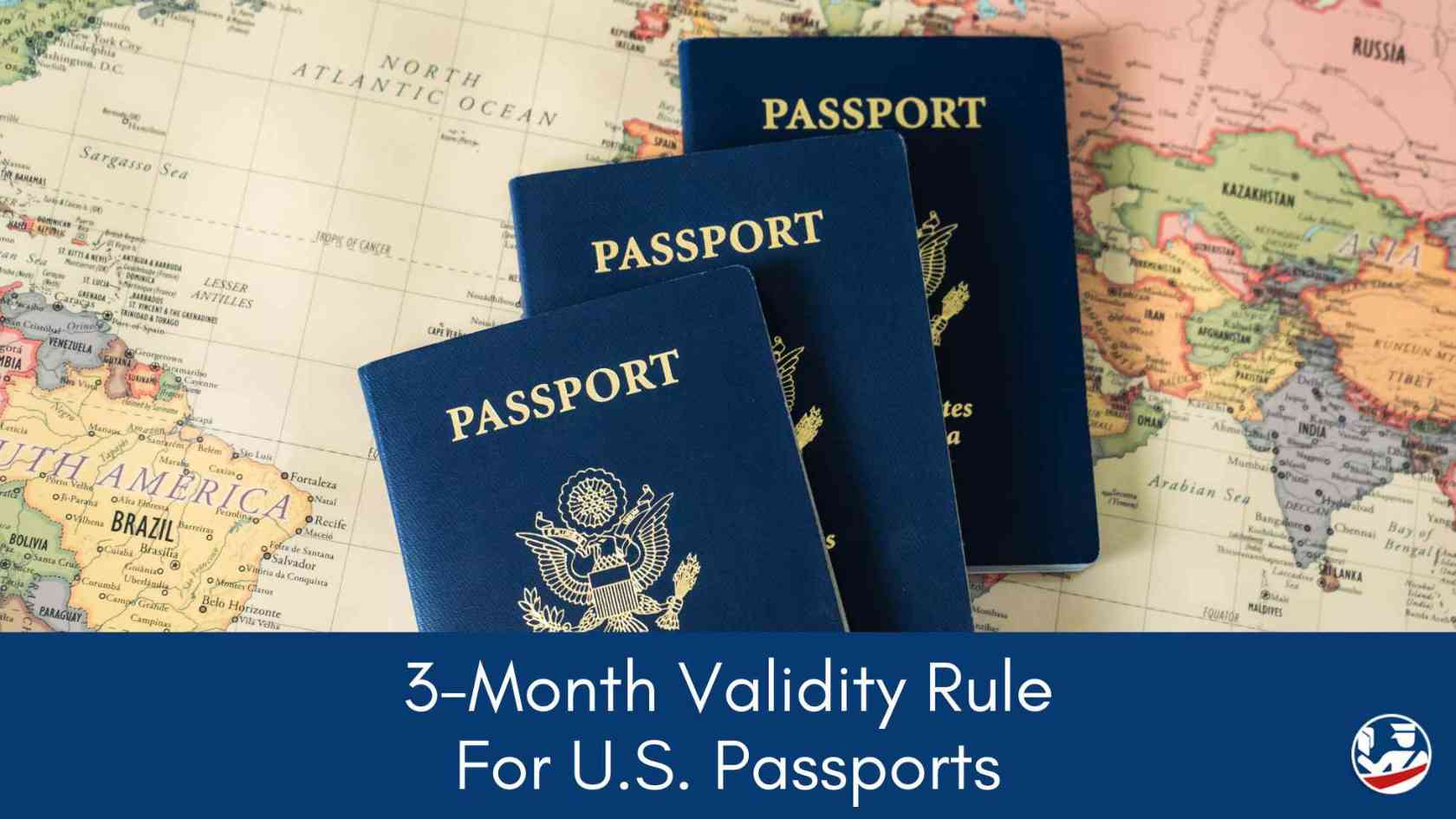
Are you ready to plan an international trip? Before booking your tickets and traveling abroad, make that the validity of your passport is up-to-date. One crucial part of this process usually overlooked by people is the 3-month rule enforced by certain countries.
Even if your passport has not expired yet, there are places you cannot travel to or through unless you have at least 90 days' worth of validity remaining before the expiration date. These passport requirements are not negotiable.
If you are looking to travel internationally, you need to be prepared with a passport that will allow you to travel to and through all the countries on your itinerary.
Short Summary
- The 3-month passport validity rule requires passports to be valid for at least 3 months beyond the intended date of arrival, with exceptions and special cases.
- It is important to research entry requirements, obtain necessary visas in advance, and verify a passport's expiration date before traveling.
- If your passport does not have enough validity remaining, you will need to apply in person at a regional passport agency. Alternatively, our expert advice is to enlist the help of a registered passport expediting service to get your passport renewed as fast as possible .
- Emergency situations may require contacting one's home nation embassy or consulate to apply for emergency passport renewal service .
Click for reliable expedited passport courier service .
Understanding the 3-Month Passport Validity Rule
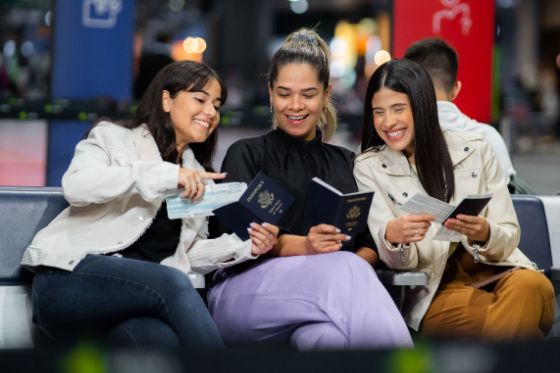
The 3-month passport validity rule mandates that a passport is valid for up to three months after the anticipated date of arrival. This regulation is in place to prevent illegal residency and guarantee travelers possess legal passports throughout their stay. Simply put, if you don't have the right travel documents, countries will deny you entry across their borders.
It's important for people intending to travel abroad to be informed about their destination country's rules about expiring passports. These differ from one nation to another.
While some countries require just a 3 month validity period, others might have different passport validity requirements. Some simply require a valid passport at time of entry. Many countries require more.
For example, many countries impose 6 month passport validity rules where individuals must have at least six additional months left before their passport expires. In some cases, requirements include other validity periods based on the nature of the traveler's stay and the corresponding visa.
To learn more, be sure to check out our guide to the six month validity rule for passports . We also maintain a list of countries that require six months of validity for entry.
Europe, The Schengen Agreement, and the 3-Month Rule
Many European countries are a part of the Schengen Agreement. This decades-old agreement between 27 European countries was designed to make travel within member nations faster, more efficient, and less expensive.
The agreement requires travelers to have valid passports during their stay, and it is governed by a 3-month passport validity rule. This same rule is also imposed by most other non-member nations across Europe in order to ensure that visitors do not overstay beyond their visa period.
Because of this common policy, countries can more efficiently monitor movement at their borders while reducing any risks connected with extended visits.
If you are planning to travel to Europe, be sure to read more about the Schengen Agreement , its rules, and its history.
Countries with a 3-Month Passport Validity Requirement
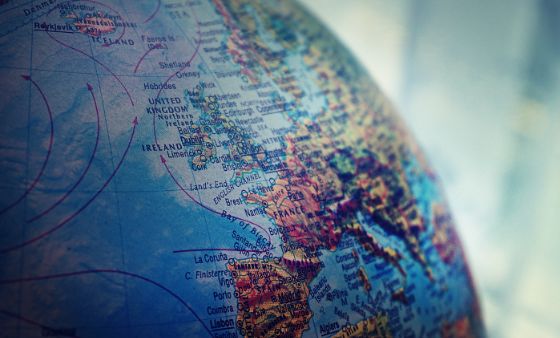
Again, passport validity is a critical factor for anyone planning international travel. Many European countries that are part of the Schengen Agreement require passports to be valid at least three months after an intended date of departure, including France, Germany, Italy and Spain among others.
Aside from these nations within Europe's borders, other non-European states impose this same 3 month passport rule too. Albania, Guatemala, and Panama being some popular examples.
It is important to research the passport policies for each country you plan on visiting. This is the only way to make sure you don't have hiccups during your travels due to invalid passports or failure to meet requirements regarding particular validity periods (which may also include six month rules). Ensure your U.S. passport holds sufficient time before leaving home by double checking beforehand!
Schengen Area Countries
The following countries are part of the Schengen Agreement and require 3 months of validity remaining on your U.S. passport:
*Travel through the microstates of Monaco , San Marino, and Vatican City are also governed by the Schengen Agreement.
It's necessary that all people in transit through any of these 27 signatory nations are certain their passports maintain at least 90 days of validity throughout the duration of their travels.
Other Countries That Require 3 Months Passport Validity
Be advised that passport validity requirements can change with little notice, so please pay attention to these rules when traveling internationally so you don't stumble upon unexpected complications!
For instance, be sure to pay attention to whether the three month validity rule is calculated based on your date of entry or anticipated date of departure from your desitnation country.
As of 2023, the countries listed below have a 3-month validity rule for U.S. passport holders:
Traveling to Countries with a 3-Month Rule: Tips and Advice

When it comes to passport validity, researching the passport requirements and regulations of each destination country is key to a successful trip.
Check your passport expiration date
Check if you need a visa.
Certain countries might require a travel visa while others allow you to enter without one. Visas are issued based on why you are traveling (e.g. tourism, school , work , business , etc.). The types and lengths of each visa is determined by each country's bilateral agreements with the United States.
Like passports, visas can take time to acquire, so make sure any permits are obtained well in advance of your trip. Even though some countries offer visas on arrival , there can be issues if you are relying on this type of service.
Be prepared for emergency situations.
Even if you plan on a short trip to a destination with a low (or no) validity rules, you want to be sure you are covered in case you have to stay longer due to a medical or personal emergency. Should you need to travel internationally in a hurry, you want to be sure your passport allows you to take the most direct and efficient route without having to worry about whether your passport has enough months remaining before it expires.
As a rule, it is wise to prepare yourself before any trips by having contingency plans ready just in case anything unpredicted may occur during your trip abroad. There is a chance an unexpected emergency may require you to travel to or through a country with a three or six month validity rule. If your passport has plenty of validity left, this is something you won't have to worry about.
In case of an emergency abroad, such as a lost or stolen passport , you should contact the nearest U.S. consulate or embassy for help. You will not be able to continue your travels without a passport-no matter what the validity rules are for the countries you need to travel to or through.
Based on over 20 years of helping readers with their passport related questions, our best advice is to maintain a valid passport with at least 9 months of validity or more. When your passport gets within a year of its expiration date, don't delay; renew it!
How to Renew Your Passport and Reset Your Passport Validity
Again, if you plan to travel internationally and your passport will not be valid for three months or more, don't wait. Renew your passport as soon as possible. This will ensure you have access to any country that allows American travelers-even if it has a three or six month validity requirement.
To get yourself a new or renewed passport, you need to send an application form along with the required supporting documentation , current passport photos , and pay the passport application fees .
It should be taken into account that the time needed for this renewal process may vary, so making sure everything's in order beforehand can help avoid issues during travel plans. Currently, the time to process a passport application is 6 to 8 weeks . An expedited application will be processed in 2 to 3 weeks .
Be sure to take into account these current processing times for renewal applications before planning any international trips. Also be advised that you will need to submit your current passport as part of the passport renewal process. This means you will not be able to travel internationally until your renewed passport arrives.
Visit our complete guide to renewing a U.S. passport for step-by-step instructions for how to get your passport renewed and our best tips for speeding up the process.
Expedited Passport Services
For those who require a new passport or need to renew theirs in a hurry, expedited services are available. Choosing expedited passport renewal on your application can save you several weeks of waiting for your new travel document, but it may not be fast enough for your needs.
For a faster passport renewal, you can try to make an appointment at one of the 26 regional processing agencies across the U.S. Know that you will need to demonstrate a need to travel internationally within 14 days. This option also includes several additional costs that must be considered.
The fastest and most efficient way to get a passport renewed is through a passport expediting service . These professionals use their expertise and experience to get you a passport faster than you likely can on your own. While they charge a fee for their services, these fees are often much less than what it costs to travel to a regional passport agency on your own and potentially wait days for your new passport to be issued.
Should you opt to go this route, consult our directory of top passport expediters .
Frequently Asked Questions
Can i travel with less than 3 months on my passport.
When planning any international travel, it is important to ensure that your passport will be valid for the duration of your trip and beyond. You should have at least three months remaining on your passport before going abroad. Many countries may require a validity period of six months or more.
Most airlines refuse boarding if you don't meet this requirement, so make sure you check in advance! To avoid issues while traveling overseas. For maximum travel flexibility, make certain that there's still enough time left on your passport by checking that it is valid for at least six months after departure dates from each destination on your itinerary.
Can I travel with 2 months on my passport?
Most countries require that your passport remain valid for a minimum of either three or six months beyond the duration of your trip. If you are planning to travel to one of these locations, you can't travel with only two months left. You likely will not even be able to board your international flight as most airlines deny boarding if relevant passport requirements for the destination country are not met.
To make sure that you are able to have a secure and safe journey, be certain to check all details in advance like dates or other information about any passports used before taking off.
However, some countries require only that your passport is valid upon entry. For peace of mind, always be sure your passport has enough extra validity remaining to account for any potential emergencies or disruptions to your travel plans.
Can I travel to Mexico if my passport expires in 3 months?
As long as your passport is still valid for the duration of the trip, you may go to Mexico even if it's expiring in three months. Mexican travel regulations don't mandate any minimum validity period for passports.
Can I travel to Canada if my passport expires in 3 months?
You can go to Canada as long as you have a valid passport during your stay-even if it's expiring in three months. Canadian travel requirements do not have any minimum validity period for U.S. passport holders.
Top 5 Questions About Expedited Passport Couriers
1. How can you get a passport when you're in a hurry? 2. What exactly does a passport expediter do? 3. Are passport expediting services legitimate? 4. How can I identify a reliable passport expeditor? 5. Is expedited passport service worth it?
You can also visit our library of articles about passport expediting .

Get the Latest Updates
- PSP Division
- Passport Seva
- Passport Offices in India
- Mission/Post Abroad
- Citizens' Charter
- General Information
- Chief Passport Officer
- Passport Offices
- Vigilance Unit
- Visa Services
- Consular / Visa
- Gazette Notification changing name in applicant's department
- Fresh ID Certificate in changed name
- Citizen of India by birth: You are Citizen of India by birth if you are born in India subject to fulfillment of provisions in The Citizenship Act, 1955.
- Citizen of India by descent: You are Citizen of India by descent if you are born outside India and either of your parents is a citizen of India at the time of your birth subject to fulfillment of provisions in The Citizenship Act, 1955.
- Citizen of India by registration/naturalization: You are Citizen of India by Registration/Naturalization if you have been granted Indian Citizenship by Ministry of Home Affairs (MHA), Government of India.
- Damaged Passport - Passport number is readable, name is legible and Photo is intact
- Damaged beyond recognition
- Original and self attested photocopy of your passport.
- Documentary proof for any one of the Non-ECR (previously ECNR) categories - if you are eligible for Non-ECR. Please click here to check the Documents required for ECNR.
- Proof of present address.
- Passport in original with self-attested photocopy of its first two and last two pages, including ECR/Non-ECR page (previously ECNR) and the page of observation, if any, made by Passport Issuing Authority and validity extension page, if any, in respect of short validity passport.
- For existing Ordinary Passport (if any): Proof / Certificate of Safe Custody done at your office.
- For existing Diplomatic/ Official Passport (i.e. in Re-Issue applications) : the original Diplomatic/Official Passport for cancellation. If the same is kept in the safe custody of the Ministry of External Affairs, the original surrender/safe custody certificate. If the same has been cancelled by Ministry of External Affairs, the original cancellation certificate.
- A copy of your Official Identity (ID) Card (or that of the Head of Office)
- A copy of Certificate issued by the Head of Office in the format enclosed within the new Diplomatic/Official Application Form available in the website
- The Official Request from Forwarding Officer in the format enclosed within the new Diplomatic/Official Application Form available in the website
- The Political/PMO Clearance Certificate, if applicable
- Proof of assessment of income tax and actual payment of income tax for last one year; or
- Income Tax returns statement (with income tax being paid by the applicant) for last one year that is stamped by income tax authorities and a copy of the PAN card.

Travel Guide
- Things to Do
- Entry Requirements & Customs
- Getting Around
- Regions in Brief
- Tips on Accommodations
- Calendar of Events
- Sustainable Travel & Ecotourism
- Getting There
- Health & Safety
- Escorted & Package Tours
- Tips for Gay and Lesbian Travelers
- Tips for Senior Travelers
- Tips for Travelers with Disabilities
- Tips for Women Travelers
- Tips for Black Travelers
- Staying Connected
- Suggested Itineraries
Entry Requirements & Customs in India
Anyone entering India will require a passport. The websites listed there provide downloadable passport applications as well as the current fees for processing passport applications. For an up-to-date country-by-country listing of passport requirements around the world, go to the "International Travel" section of the U.S. State Department's Bureau of Consular Affairs website at http://travel.state.gov .
For other information, please contact the following agencies:
For Residents of Australia -- Contact the Australian Passport Information Service at tel. 131-232, or visit the government website at www.passports.gov.au.
For Residents of Canada -- Contact the central Passport Office, Department of Foreign Affairs and International Trade, Ottawa, ON K1A 0G3 (tel. 800/567-6868; www.ppt.gc.ca).
For Residents of Ireland -- Contact the Passport Office, Setanta Centre, Molesworth Street, Dublin 2 (tel. 01/671-1633; www.irlgov.ie/iveagh).
For Residents of New Zealand -- Contact the Passports Office at tel. 0800/225-050 in New Zealand or 04/474-8100, or log on to www.passports.govt.nz.
For Residents of the United Kingdom -- Visit your nearest passport office, major post office, or travel agency or contact the United Kingdom Passport Service at tel. 0870/521-0410 or search its website at www.ukpa.gov.uk.
For Residents of the United States -- To find your regional passport office, either check the U.S. State Department website or call the National Passport Information Center toll-free number (tel. 877/487-2778 ) for automated information.
Travelers to India -- unless carrying an Indian, Nepalese, or Bhutanese passport -- should apply for a tourist visa from their nearest Indian Consulate or High Commission. This is valid for multiple entries for a prestipulated period of time from the date of issue (this will depend on your travel dates and the country in which you are applying). Given the nature of India's bureaucracy, the rules and fees for application change regularly, so it's best to check with your travel agent or with the relevant authority for the latest visa information. Accurately completed visa application forms must be accompanied by two passport-size photographs (on a light background) and the appropriate processing fee; apply well in advance to avoid unforeseeable delays. You won't be admitted to India unless your passport is valid for at least 6 months after your entry, and it should typically also be valid for at least 3 months beyond the period of your intended stay. Check for fee structure and more details at www.indianembassy.org, but note that a number of Indian embassies and consulates now outsource the visa procurement process, meaning that you need to go through a third-party that specializes in dealing with entry visas. In the U.S., the Indian Embassy is at 2107 Massachusetts Ave., Washington, DC 20008 (tel. 202/939-7000 ); and there are consulates in Houston, New York, San Francisco, and Chicago -- but the visa agency you'll be dealing with is Travisa (http://indiavisa.travisaoutsourcing.com). In Canada, visa applications can be made through http://in.vfsglobal.ca; there are consulate generals in a number of cities across the country. In the U.K., India House is in Aldwych, London WC2B 4NA (tel. 020/7632-3149; www.hcilondon.net); for visa fees and procurement in the U.K., visit http://in.vfsglobal.co.uk. In Australia, the Consulate General in Sydney (Level 27, 25 Bligh St.; tel. 02/9223-9500; www.indianconsulatesydney.org) outsources visa applications to VFS Australia (www.vfs-in-au.net; tel. 1900-960-960 ).
If you're applying for a visa in a country where India does not have a representative, you are advised to make inquiries at the nearest British authority.
A special permit is required for foreigners wishing to visit the Lakshadweep Islands, as well as sensitive border areas including Sikkim, parts of Ladakh, and certain roads in eastern Himachal Pradesh. For Lakshadweep, your permit will be arranged when your accommodations are reserved. Permits for the other restricted regions can be obtained in India, sometimes within a few frustrating hours. Carry a number of passport-size photographs and copies of the personal particulars and Indian visa pages of your passport to apply for these permits.
What You Can Bring into India -- You can bring as much foreign currency into India as you like; if you have over $10,000 in cash or traveler's checks, however, you should complete a declaration form. You may not import Indian currency into India. In addition to your personal effects, you are allowed 2 liters of alcohol, and 200 cigarettes or 50 cigars. (Know that foreign liquors and imported cigarettes are very heavily taxed and in some areas difficult to come by.) You may carry a cellphone, camera, and pair of binoculars, but officially you may have only five rolls of film. You must complete a special Tourist Baggage Re-Export Form if you are carrying valuables such as a laptop computer, major video equipment, special camera gear, or high-value jewelry. Although there is a strong possibility that you may encounter difficulties upon leaving if these forms are not completed, you'll discover a general malaise among Customs officials, who seldom hassle foreign visitors on international flights. Also, much of the bureaucratic heavy-handedness has eased in recent years, and there is less suspicion of foreign travelers. In fact, arrival in India is incredibly straightforward and generally hassle-free.
What You Can Take Home from India -- You may not export Indian currency. Exchange all notes at the airport before you depart. Note that airport money-changers frequently run out of certain currencies, so you might want to complete any exchange before you go to the airport. There is a restriction on the exportation of anything over 100 years old, particularly works of art and items of cultural significance. It is illegal to export animal or snake skins, ivory, shatoosh wool, or anything that has been produced using these materials. Generally, jewelry valued under Rs 10,000 may be exported, while gold jewelry valued up to Rs 2,000 is allowed.
For information on what you're allowed to bring home, contact one of the following agencies:
U.S. Citizens: U.S. Customs & Border Protection (CBP), 1300 Pennsylvania Ave., NW, Washington, DC 20229 (tel. 877/287-8667; www.cbp.gov).
Canadian Citizens: Canada Border Services Agency (tel. 800/461-9999 in Canada, or 204/983-3500; www.cbsa-asfc.gc.ca).
U.K. Citizens: HM Customs & Excise at tel. 0845/010-9000 (from outside the U.K., 020/8929-0152), or consult their website at www.hmce.gov.uk .
Australian Citizens: Australian Customs Service at tel. 1300/363-263, or log on to www.customs.gov.au .
New Zealand Citizens: New Zealand Customs, The Customhouse, 17-21 Whitmore St., Box 2218, Wellington (tel. 04/473-6099 or 0800/428-786; www.customs.govt.nz ).
Note : This information was accurate when it was published, but can change without notice. Please be sure to confirm all rates and details directly with the companies in question before planning your trip.

- All Regions
- Australia & South Pacific
- Caribbean & Atlantic
- Central & South America
- Middle East & Africa
- North America
- Washington, D.C.
- San Francisco
- New York City
- Los Angeles
- Arts & Culture
- Beach & Water Sports
- Local Experiences
- Food & Drink
- Outdoor & Adventure
- National Parks
- Winter Sports
- Travelers with Disabilities
- Family & Kids
- All Slideshows
- Hotel Deals
- Car Rentals
- Flight Alerts
- Credit Cards & Loyalty Points
- Cruise News
- Entry Requirements & Customs
- Car, Bus, Rail News
- Money & Fees
- Health, Insurance, Security
- Packing & Luggage
- -Arthur Frommer Online
- -Passportable
- Road Trip Guides
- Alaska Made Easy
- Great Vacation Ideas in the U.S.A.
- Best of the Caribbean
- Best of Mexico
- Cruise Inspiration
- Best Places to Go 2024
Passport Validity for Travel to India [2024 & Beyond]
Passport validity: All you need to know before traveling to India
Key takeaway.
It’s all set—you’re going to India. You’ve packed your things, prepared the itinerary, you’ve even looked up a few new words to surprise the locals.
And yet, one question is still bugging you—
What’s the minimum passport validity to enter India?
Worry not! This article will discuss all the essentials of traveling to India with a US passport. We’ll also mention different instances to address the holders of other documents.
Passport near the expiration date? Secure your travel and apply for a new passport today. With our Passport Photo Booth App for iOS or Passport Photo Maker App for Android , you’ll create a 100% compliant picture within minutes and receive it immediately in your email or directly to your door in 3 days!

We’ve discussed more passport-related issues for travelers! Check them out:
- Emergency Travel with an Expired Passport
- Where Can You Travel Without a Visa as a Green Card Holder?
- Can You Travel with a Green Card and an Expired Passport?
Let’s take a look at the general requirements first:
Every tourist, regardless of nationality, must carry a valid passport and visa to enter India. The purpose of their visit and the length of stay is determined by the type of Indian visa they apply for.
Generally, your passport must be valid for at least six months upon arrival to India. Also, it’s recommended that your passport is valid for at least three months when leaving the country.
Now, as you already know—your passport is not the only document necessary for traveling to India. Below, we’ll discuss these cases in more detail.
US passport validity for travel to India
To answer shortly—your US passport must be valid for at least six months to enter India without any issues.
However, as a US passport holder, you must also apply for an eVisa before traveling to India.
US citizens can choose between three types of tourist visa, depending on their desired stay. These visas can be valid for:
Important : You must apply for an eVisa with a valid passport. If your passport is valid for less than six months before your trip to India, you must apply for a new passport and redo the process of acquiring a tourist visa. See different options to renew a US passport .
Also, regardless of the time left on your visa—say, it’s still valid for three years—if your passport expires, so does your visa.
Passport validity for travel to India with OCI
The Overseas Citizenship of India (OCI) cards are issued to Indian nationals and their spouses who have or have obtained a different nationality. Since Indian authorities don’t allow dual citizenship, the OCI card permits foreign nationals of Indian origin to live and work in India.
OCI cardholders must also obtain visas before traveling to India—in that case, a 5-year visa is automatically issued.
However, your passport must still be valid for at least six months upon visiting India. Otherwise, you must apply for a new passport.
Technically, an OCI card is a life-long visa. There are some instances, though, in which you’ll have to renew your card . If that’s your case, see how you can prepare and resize your OCI photo effortlessly.
Travel to India with an Indian passport that’s valid for less than 6 months
If you’re an Indian passport holder, you can visit India without applying for a visa.
However, even for Indian citizens, the country has a 6-month passport validity rule. That means if your passport is valid for less than six months, you’ll be denied entry to India.
Need a new passport? See how you can renew your expired Indian passport in the US .
Pro tip : Ensure your passport has two blank pages for the Immigration Officer to stamp.
Travel stress-free and always prepared! Get your passport photo quickly with our Passport Photo Booth App for iOS or Passport Photo Maker App for Android , and worry not about your document expiring.

Can I travel to India with less than 6 months on my passport?
Unfortunately, no. Local authorities require every foreigner entering India to carry a passport that’s valid for at least six months at the time of arrival.
Can you travel to India if your passport expires in 3 months?
Unfortunately, no. You must carry a passport that’s valid for at least six months. In any other case, you should apply for a new passport before traveling to India.
How many months of passport validity is required to travel to India?
The minimum passport validity to travel to India is six months. Moreover, it’s recommended that your passport is valid for at least three months when leaving India.
Can I travel to India with a US passport expiring in 3 months with OCI?
Your passport must be valid for at least six months upon arrival to India, even though you carry an OCI card.
Now you know—
In every case, your passport must be valid for at least six months at the time of entering India.
If you aren’t an Indian passport holder, additionally you’ll have to apply for eVisa—and for that, your passport must also be valid for six months. Renew it early enough before your travel to ensure a stress-free trip.
Rate my article:
Average rating 4.7 / 5. Vote count: 19
No votes so far! Be the first to rate this post.

Roxana is a writer with 3+ years of experience. As a Master in psycholinguistics, she blends her passion for language and communication with insights from diverse cultures, making her content resonate with a broad audience.
You may also like
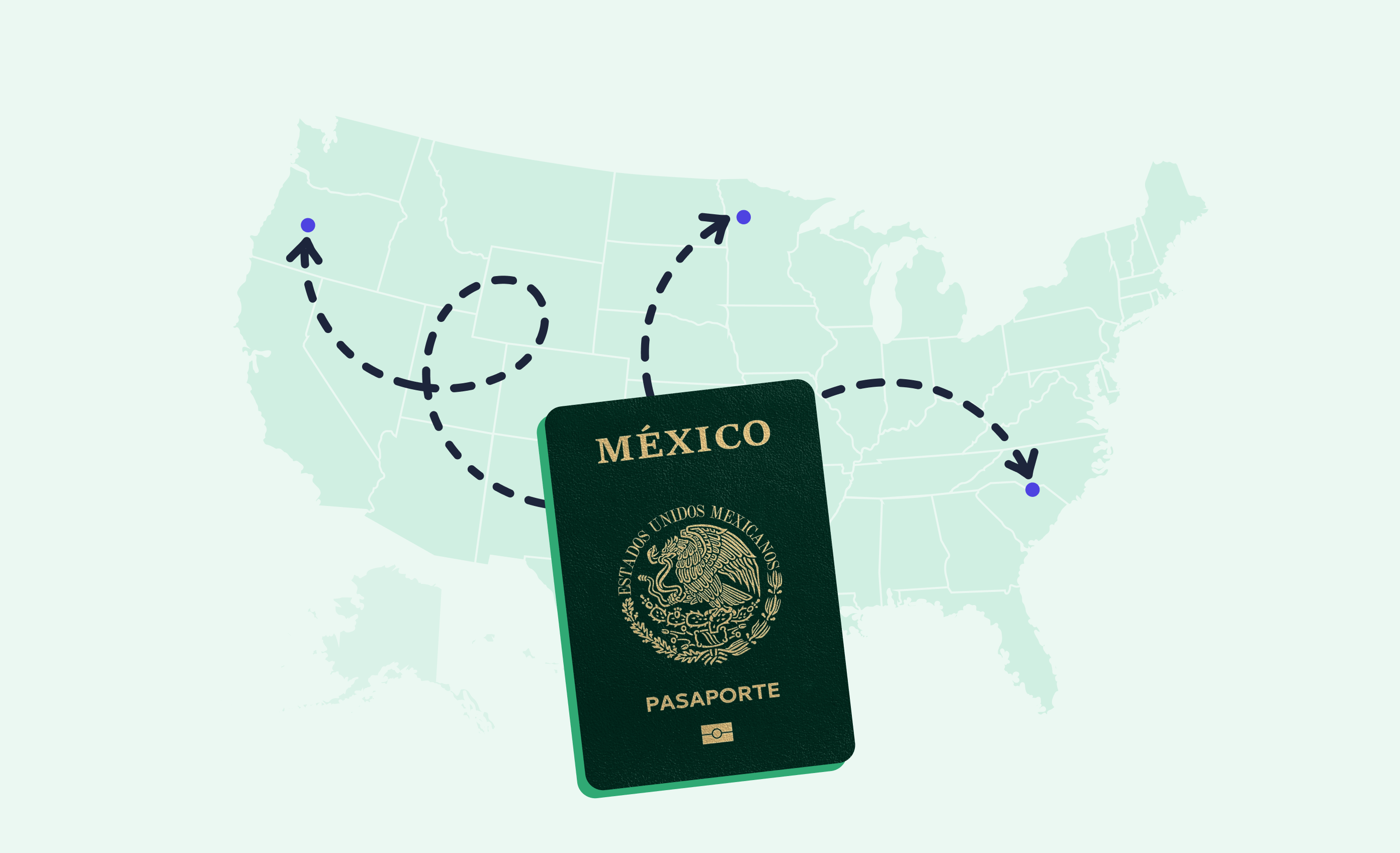

An official website of the United States government
Here’s how you know

Official websites use .gov A .gov website belongs to an official government organization in the United States.
Secure .gov websites use HTTPS A lock ( Lock A locked padlock ) or https:// means you’ve safely connected to the .gov website. Share sensitive information only on official, secure websites.

- Documents Library
Six-Month Validity Update


Travel to India: Essential Tips for a Safe and Enjoyable Trip
- Laura Soper
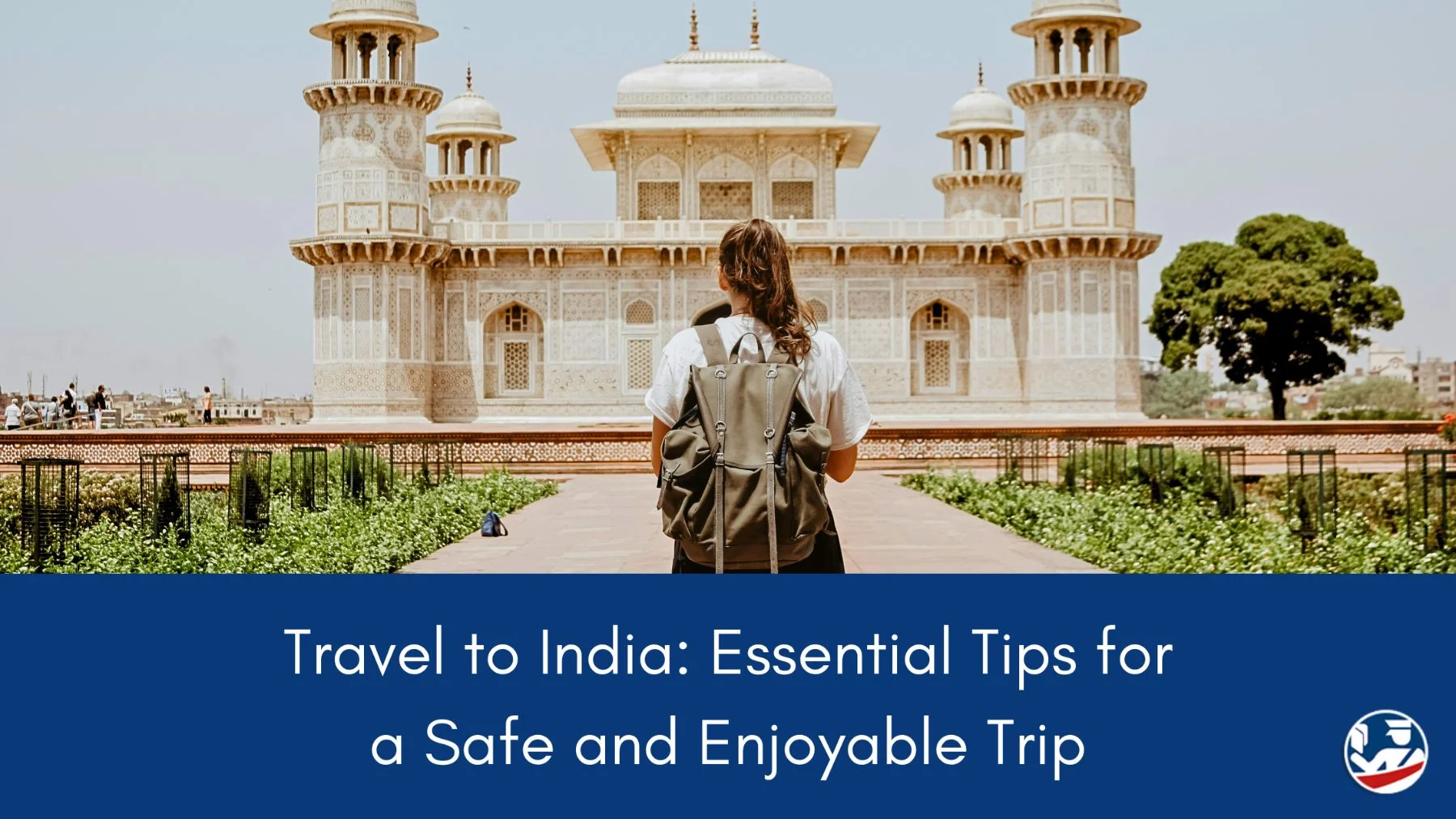
Traveling to India can be an incredible experience, but you have to be well-prepared to ensure a safe and enjoyable trip. With its rich culture, deep history, and stunning natural beauty, India offers numerous fascinating tourist attractions and incredible vacation destinations. However, there are also potential pitfalls and dangers if you don’t prepare and plan effectively.
India is a remarkable travel destination, brimming with ancient sites, awe-inspiring architecture, and modern marvels. The country’s diverse population, varied geography, and wide-ranging climate add to its unique appeal.
As the world’s second most populous country and the seventh largest by land area, India offers a vast array of sights and activities. Such a large destination requires careful consideration. Thorough planning is essential to make the most of your visit and to navigate the complexities of this diverse and vibrant nation.
Table of Contents
India travel document requirements.
Foreign visitors are required to have both a valid passport and a travel visa when visiting India.
A valid passport with at least 6 months of validity and at least 2 blank pages is one of the required travel documents to enter India. Regulations change occasionally so it is always best to verify the newest updates before your trip. Be sure to check out our complete guide to India’s passport requirements .
A travel visa is also required documentation when traveling to India. For a complete list of requirements and step-by-step instructions for obtaining a visa to India, please refer to our India Visa Guide .
In a hurry? Apply online for expedited visa service .
Currency in India

India’s currency is the rupee (INR). Before traveling, you can obtain rupees from most banks, travel agencies, and even AAA. Upon arrival in India, ATMs, which are abundant in most populated areas, typically offer favorable exchange rates. While Indian banks, hotels, and travel services are also options for obtaining rupees, their rates are often higher than ATM fees and the conversion rates charged by American banks. To avoid having your card frozen, be sure to inform your bank about your travel plans.
If you are traveling with U.S. currency, be aware that any amount over $5,000 must be declared. For large amounts of currency, it’s advisable to contact the Indian Embassy in Washington, D.C .
Additionally, India allows up to 25,000 rupees to be brought into or out of the country without any formal declaration. Any amount exceeding this limit must be declared.
Indian Customs Regulations
When traveling to India, it’s crucial to be aware of the country’s customs regulations to avoid any legal issues. Indian customs strictly prohibit the import or export of certain items. Familiarizing yourself with these regulations can help ensure a smooth and trouble-free entry into the country.
Indian customs regulations prohibit the import or export of the following items:
- Illegal drugs
- Counterfeit money and goods
- Firearms and ammunition (prior permission required)
- Knives and deadly weapons
- Pets and other live animals (prior permission required)
- Birds and bird products (e.g., eggs and feathers)
- Pigs and pig meat products
- Endangered plants of any kind
- Plants and plant products (prior permission required)
- Radio transmitters
- Satellite phones
- Culturally important or valuable antiques
- Pornographic or obscene material
It is essential not to attempt to enter India with any of these items mentioned above in your possession—on your person or in your luggage. The Indian authorities take these regulations very seriously, and violations can result in fines, arrests, or deportation.
Crime in India
Traveling in India requires caution, especially when venturing away from main tourist centers.
Women, in particular, need to be vigilant, as cases of sexual harassment and assault have increased significantly in recent years, posing a serious threat to female travelers .
To stay well-informed and better prepared for visiting India, please refer to the most up-to-date travel advisories .
That said, with the proper precautions taken, India can be a safe place to visit. While staying in India, follow these security measures:
- Travel with a group.
- Enroll in the Safe Traveler Enrollment Program (STEP) .
- Keep friends and family informed about your travel itinerary and whereabouts.
- Stick to tourist-friendly locations instead of exploring off-the-grid areas.
- Always carry a charged, GPS-enabled cell phone.
- Dress modestly; travelers in India are advised to respect local customs and dress codes , as Indian men and women typically wear conservative clothing in their daily lives.
- Keep valuables and travel documents secure or locked in a hotel safe.
- Do not accept free rides, food, or drinks from strangers.
Consulate Access in India
India hosts four U.S. consulates, each serving travelers visiting different regions within the country:
1. U.S. Consulate General Mumbai
- The Consulate General in Mumbai serves travelers visiting the states of Goa, Gujarat, Chhatisgarh, Madhya Pradesh, Maharashtra, Diu and Daman, Dadra and Nagar Haveli, and Mumbai.
- Website: U.S. Consulate General Mumbai (Bombay)
- Address: C-49, G-Block Bandra Kurla Complex Bandra East, Mumbai 400051
- Telephone: +(91) (22) 2672-4000
- Emergency After-Hours Telephone: +(91) (22) 2672-4000 (NOTE: If you are calling from within India, but outside Mumbai, you must first dial 022.)
- Fax: 91-(0)22-2672-4786
- Email: [email protected]
2. U.S. Consulate General in Chennai
- The Consulate General in Chennai serves travelers visiting the states of Tamil Nadu, Karnataka, Kerala, and the Union Territories of Andaman and Nicobar Islands, Pondicherry, and Lakshwadeep Islands.
- Website: U.S. Consulate General Chennai (Madras)
- Address: 220 Anna Salai at Gemini Circle Chennai, India 600006
- Telephone: +(91) (44) 2857-4000 American Citizen Services. (NOTE: Within India, but outside Chennai, first dial 044. From the United States, first dial 011-(91) (44) )
- Fax: +(91) (044) 2811-202
- Email: [email protected]
3. U.S. Consulate General in Hyderabad
- The Consulate General in Hyderabad serves travelers visiting the states of Andhra Pradesh, Telangana, and Odisha.
- Website: U.S. Consulate General Hyderabad
- Address: Paigah Palace 1-8-323, Chiran Fort Lane Begumpet, Secunderabad 500 003 Hyderabad, India
- Telephone: +(91) (40) 4033-8300 Emergency After-Hours Telephone: 4033-8300 and ask for American Citizen Services. (NOTE: If calling from within India, but outside Hyderabad, first dial 040. From the United States, first dial 011-(91) (40) .)
- Fax: 4033-8306
- Email: [email protected]
4. U.S. Consulate General in Kolkata
- The United States Consulate General in Kolkata serves travelers visiting the states of Bihar, West Bengal, Jharkhand, Nagaland, Mizoram, Manipur, Meghalaya, Arunachal Pradesh, Sikkim, Tripura, and Assam.
- Website: U.S. Consulate General Kolkata (Calcutta)
- Address: 5/1 Ho Chi Minh Sarani
- Kolkata – 700 071, West Bengal, India
- Telephone: +(91) (33) 3984-2400
- Emergency After-Hours Telephone: +(91) 99030 42956 or +(91) (33) 3984-2400, then dial “0”
- Fax: +(91) (33) 2282-2335
- Email: [email protected]
These consulates play a crucial role in promoting U.S.-India relations and assisting U.S. citizens while in India. If you need any specific information or assistance, feel free to reach out to them.
Restricted Areas in India
Certain regions in India are designated as “restricted areas” by the Indian Government and require special advance permission to visit. These areas include:
- The state of Mizoram
- The state of Manipur
- The state of Arunachal Pradesh
- The state of Nagaland
- The state of Sikkim
- Portions of Himachal Pradesh near the Chinese border
- Portions of Uttarakhand (Uttaranchal) near the Chinese border
- Portions of Rajasthan near the Pakistani border
- Portions of Jammu & Kashmir near the Line of Control with Pakistan
- The Andaman & Nicobar Islands
- The Union Territory of the Laccadives Islands (Lakshadweep)
- The Tibetan colony in Mundgod, Karnataka
Travelers planning to visit these areas must obtain the necessary permissions in advance.
Understanding Dual Nationality and the Overseas Citizens of India (OCI) Program
India does not recognize dual nationality . Instead, the country offers the Overseas Citizens of India (OCI) program . Although it doesn’t grant Indian citizenship, the OCI card functions similarly to a U.S. green card. It allows properly credentialed U.S. citizens to travel to and from India indefinitely, work, study, and own property in India (with exceptions for certain agricultural and plantation lands).
While U.S. citizens with an OCI card enjoy many of the same privileges as Indian citizens regarding work and residence, they retain their U.S. citizenship. This program provides a valuable opportunity for U.S. citizens to engage with India on a long-term basis without renouncing their original nationality.
Health and Medical Issues When Traveling to India
Before traveling to India, ensure you have adequate medical insurance coverage, as your American policy may not cover you abroad.
Updating your vaccinations before traveling is also recommended. The most essential vaccines include:
- Tuberculosis
To minimize the risk of illness while in India, avoid eating street food and drinking tap water.
Timing your travel is also important. Dengue fever, a mosquito-borne illness, is a persistent risk across India. The highest transmission period is from July to December, with September and October being the worst months. Wearing long-sleeved shirts and using mosquito repellent are critical precautions.
Medical tourism is a growing trend in India, attracting people from around the world seeking exceptional care from leading doctors at affordable rates. According to the U.S. Department of State , “Medical care in major population centers approaches and occasionally meets Western standards.” However, please be advised that the quality of medical care varies greatly due to factors such as geography—rural areas often lack adequate medical access—and the type of treatment required.
India’s Geography
India features three major geographical regions, making it an ideal destination for those seeking environmental diversity.
Those regions are:
- Himalayas : This rugged, mountainous region in the north is renowned for its breathtaking landscapes and challenging terrain. The Great Himalayas protect India from the chilling winds of China. This mountain range offers spectacular scenic views and some of the most challenging climbs and hikes for outdoor adventurers.
- Indo-Gangetic Plain : Located in the northern part of the country, this region is the heart of India’s large-scale agriculture. The vast plains of central India are nourished by some of the world’s most prominent rivers. The Ganges River flows across the country, providing essential irrigation and food resources to nearly the entire nation. For visitors, the Ganges also offers legendary white water rafting challenges.
- Peninsula Region : Found in the southern and central portions of India. The Deccan Plateau in the south, along with the Indian Ocean coastline, covers over 160,000 square miles and accounts for 43% of India’s total landmass. This region adds to India’s rich geographical diversity, offering unique landscapes and experiences for travelers.
Top Areas of Interest in India
India is home to countless unique wonders that cannot be experienced anywhere else in the world. Historically, India is one of the richest countries in the world. The Indus Valley, dating back to nearly 3000 BC, was home to the oldest civilization in history.
Religious Temples

India is the birthplace of several of the world’s largest religions, including Hinduism, Buddhism, Sikhism, and Jainism. As a result, the country is dotted with numerous awe-inspiring shrines, monuments, and temples. While some sites are partially or entirely restricted to tourists, many breathtaking spiritual sites are open to the public.
When visiting these sites, be sure to respect local customs and follow dress codes to avoid offending.

The Taj Mahal, an embodiment of love, was built by the Mughal ruler Shah Jahan for his wife Mumtaz Mahal. Recognized as one of the seven wonders of the modern world, it is open to visitors from 30 minutes before sunrise until 30 minutes before sunset, and also from 8:30 p.m. to 12:30 a.m. on the night of the full moon. Tickets must be purchased from the Ministry of Culture website .
Expert travelers recommend visiting the Taj Mahal between November and February to avoid the rainy season and extreme heat.

Delhi, the political capital of India, is also one of its most historic cities. The bustling streets offer local bazaars, exciting festivals, exceptional restaurants, and astounding architectural marvels. However, visitors should be prepared for litter and signs of poverty, which are common in the capital.
One of Delhi’s most significant historical destinations is the Red Fort, built by the same architect as the Taj Mahal when Mughal emperor Shah Jahan moved the capital to Delhi in 1638.
As the capital, Delhi is a crucial hub for transportation, education, and the Indian economy. The city hosts important government buildings, business headquarters, and prestigious universities. If you have business in India, you will likely find yourself in Delhi at some point.
Mumbai (Formerly Bombay)

If Delhi is India’s political capital, then Mumbai is its business capital. Home to Dalal Street, India’s equivalent of Wall Street, Mumbai is a witness to the country’s economic fluctuations. It is also a popular destination for some of the best eateries and nightlife in India.
Culturally, Mumbai is more diverse than other parts of India, hosting a constant blend of various religions and nationalities. The city features magnificent temples, palaces, and monuments, some from British colonial rule and others significant to India’s diverse religions.
Mumbai is also home to Bollywood, the Indian film industry. Tours of Film City in the western suburb of Goregaon are available, offering a glimpse into this vibrant aspect of Indian culture.
Hotels in India

With India being such a major tourist destination, finding a hotel is usually not a problem. However, every tourist, whether local or foreign, should plan their trip well in advance to find a hotel that best suits their needs.
Key Considerations for Choosing a Hotel in India
Before selecting a hotel for your trip to India, consider the following questions:
- What are your individual interests and needs?
- Are you seeking relaxation, adventure, or both?
- Are creature comforts essential, or do you prefer the seclusion of a log cabin in the woods?
- Would you prefer five-star luxury or old-world charm?
- What is your budget? Are you prepared to spend a premium, or are you looking to experience India on a shoestring?
The answers to these questions will help narrow down your search for the best accommodations to suit your preferences and needs.
Location Matters
When planning your trip to India, consider the optimal location for your hotel. For instance, if you have a specific interest, such as visiting a wildlife reserve, it makes sense to stay as close to it as possible rather than booking a hotel that requires lengthy commuting.
Diverse Hotel Options in India
The hotel options in India are as diverse as the country itself. Depending on your needs and preferences, there are multiple options to consider:
- Five-Star Hotels Often owned by prestigious names in the Indian hotel industry, such as Taj or Oberoi , these hotels offer the ultimate in comfort and excellence in service. While most of these chains have hotels in major Indian destinations, this level of hospitality comes at a price.
- Heritage Hotels Originally former palaces or mansions belonging to India’s erstwhile princes or nobility, these have been converted into hotels. For a price, tourists can experience the history and romance of India’s former royalty. Heritage hotels can be found in states like Jodhpur , Rajasthan, Mysore, and Hyderabad.
- Eco-Friendly Hotels These hotels offer a close communion with nature during your stay. Most are located in scenic areas such as forest reserves, hill stations, or ecologically sensitive zones. While many are committed to preserving natural resources, others may use eco-friendly language and labels as a marketing gimmick.
- Wellness Centers and Spas India is home to the holistic science of Ayurveda, and there are dedicated Ay urveda hotels that provide massages, detoxification, and fitness routines to rejuvenate the body and soul. Kerala, Karnataka, Himachal Pradesh, Rishikesh, and Rajasthan are popular locations for medical tourism in India.
- Budget Hotels While many budget hotels offer decent accommodation and excellent food, the quality can vary significantly. Some have pleasant surroundings in prime locales, while others may be no better than congested motels or hostels.
By carefully considering your preferences and planning ahead, you can find the perfect accommodation to enhance your travel experience in India.
India’s Festivals and Holidays

To fully immerse yourself in India’s rich culture, consider visiting during Diwali, an amazing festival and national holiday that lasts from mid-October to mid-November. Keep in mind that popular tourist destinations will be more crowded, but you’ll experience vibrant celebrations and unique sights. If you prefer a less crowded vacation, visit at another time of year.
India is one of the most culturally diverse countries in the world, with numerous religions practiced within its borders, including Christianity, Islam, Sikhism, Buddhism, and Hinduism. This diversity results in a long list of observed religious holidays.
Certain regions of India have a dominant religion, so it’s helpful to research your destination to know what holidays to expect. India has three official national holidays observed nationwide, as well as several religious holidays that are also nationally recognized. Note that no alcohol is sold on these days.
National Holidays
- Republic Day (January 26): This day marks the adoption of the Constitution of India in 1950, replacing the Government of India Act. The largest celebration takes place in New Delhi, in front of the President of India at the Rajpath.
- Independence Day (August 15): This day commemorates India’s independence from Britain in 1947. The main celebrations occur in New Delhi, where the Prime Minister hoists the national flag at the Red Fort. Across the country, flags are raised, parades are held, and the national colors are proudly worn.
- Gandhi Jayanti (October 2): Celebrated as Mahatma Gandhi’s birthday, Gandhi Jayanti is also observed internationally as the Day of Non-Violence. Tributes and prayer services are held throughout India, especially at Gandhi’s memorial, Rajghat, in New Delhi.
Nationally Observed Religious Holidays
Below is a list of national religious holidays and festivals celebrated in India:
- Nag Panchami (Hindu): Hindu married women visit their premarital family home to celebrate the well-being of their family as part of their worship of cobras.
- Dussehra (Hindu): A festival dedicated to worshiping Durga, a Hindu deity.
- Diwali (Hindu): One of the most iconic Hindu festivals, also known as the Festival of Lights. Clay lamps filled with oil are lit to symbolize good over evil, and firecrackers are set off. Families gather to share snacks and sweets.
- Christmas Day (Christian): The commemoration of the birth of Jesus.
- Day of Ashura (Islamic): The climax of the mourning of Muharram marks the anniversary of the death of the Prophet Muhammad’s grandson in the Battle of Karbala.
- Mawlid (Islamic): Celebrates the birthday of Prophet Muhammad.
- Eid ul-Fitr (Islamic): Marks the end of the Ramadan fast, also known as the Sweet Festival.
- Eid al-Adha (Islamic): Honors Prophet Abraham’s willingness to sacrifice his son on God’s command, as well as his son’s willingness to be sacrificed. This holiday is also referred to as the Feast of the Sacrifice.
It is important to be aware of the different holidays in India so you can plan your trip appropriately, whether you want to participate in the various activities and festivals or avoid the hustle and bustle altogether.
Have a Great Trip to India!
India offers a diverse and enriching travel experience, filled with historical significance, cultural depth, and natural beauty. By planning ahead and staying informed about the country’s customs, regulations, and health considerations, you can ensure a safe and memorable trip. Whether you’re exploring ancient temples, enjoying vibrant festivals, or navigating bustling cities, India promises an adventure like no other.
Be sure to subscribe to our blog for the latest international travel policy updates, trip planning tips, and strategies for seeing the world.
About the Author: For over 20 years, the U.S. Passport Service Guide team has helped hundreds of thousands of travelers with their travel document questions and shared advice about how to make traveling abroad simpler, safer, and more enjoyable.
Get the Latest Updates

Free Resources
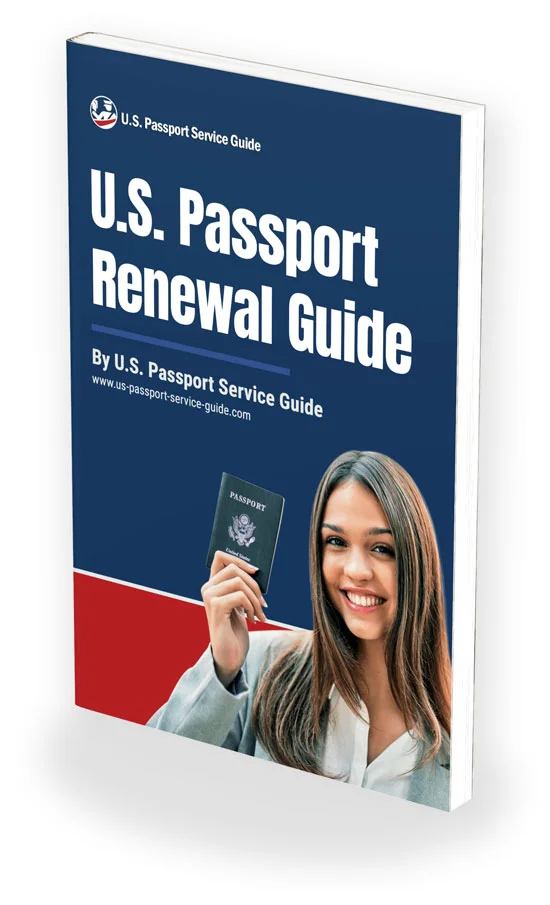
U.S. Passport Renewal Guide
Start your travels in the best possible way! Download our U.S. Passport Renewal Guide now to swiftly navigate the renewal process with expert tips and avoid any travel hiccups. Click below for your ticket to seamless travels!
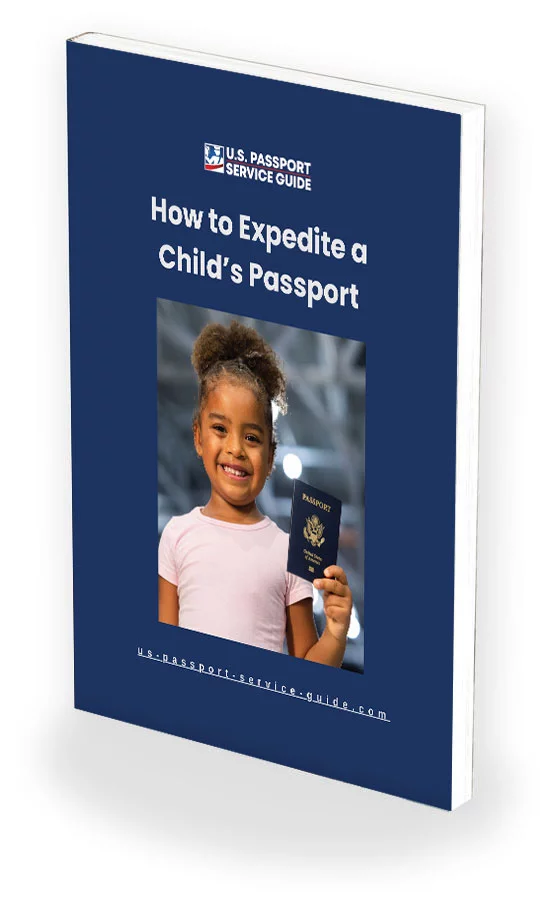
How to Expedite a Child's Passport
Download our comprehensive guide to expedite a child's passport quickly and efficiently. Get step-by-step instructions, required documents, an application checklist, and useful tips. Just click below:

Guide to AI Travel Planning
Embark on your next journey with ease using our U.S. Passport Renewal Guide. This essential tool simplifies the renewal process, offering expert advice to avoid common pitfalls. Ensure smooth, uninterrupted travels with our guide.
Related Posts
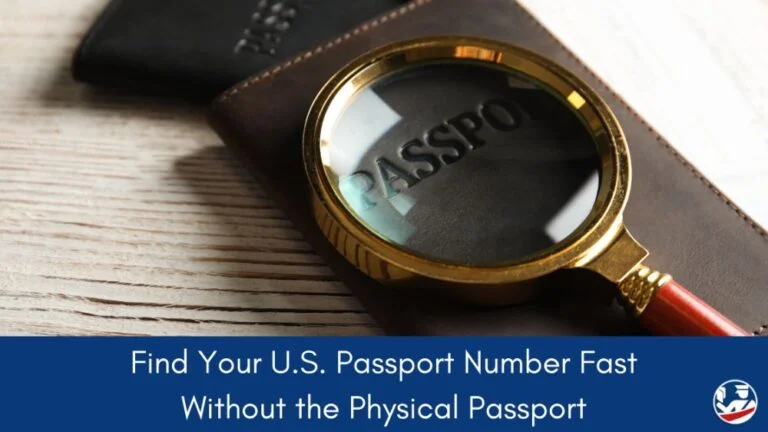
Find Your U.S. Passport Number Fast Without the Physical Passport
Stuck in your passport application due to a missing passport number? Our expert advice will help you navigate this challenge and keep your travel plans intact.
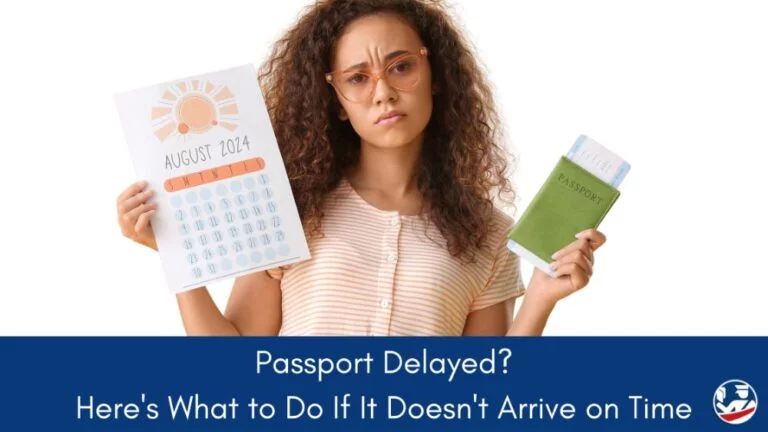
Passport Delayed? Here’s What to Do If It Doesn’t Arrive on Time
Learn how to navigate passport delays and keep your travel plans on track. Our guide offers solutions to ensure your passport arrives before your trip.
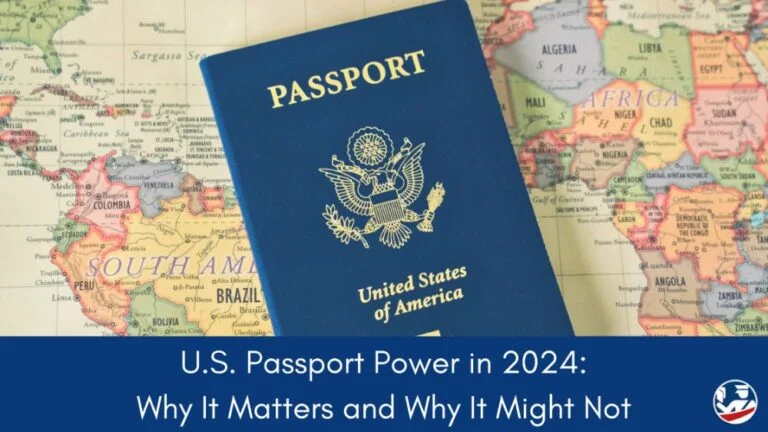
U.S. Passport Power in 2024: Why It Matters and Why It Might Not
Explore the US passport’s power in 2024. Discover how its ranking and visa requirements impact American travelers’ global mobility (and how it doesn’t).

Passport & Visa requirements India
- India Holidays
- Central India
- Eastern India & Kolkata
- Southern India & Kerala
- Christmas Holidays
- Couples Holidays
- Cultural Holidays
- Family Holidays
- Luxury Holidays
- October Holidays
- Safari Holidays
- Winter Sun Holidays
India Visa Requirements
British citizens must apply for a visa before travelling to India . Various types of visa are available, including an e-Tourist Visa (e-TV), which allows a 30-day stay and double entry, meaning you can enter India twice during the time your visa is valid. The 30 days begins on the date of your arrival into India – your passport will be stamped and an expiry date for your e-visa will be handwritten by an immigration officer (be sure to double-check this date so you don’t risk overstaying your visa). A maximum of two e-visas can be issued in one calendar year, although if you will be spending more than 30 days in India within a year, we’d recommend applying for a one-year visa instead of a 30-day one. You can discuss the best option for you with your consultant. To find out more about the eligibility criteria for an e-TV, please visit the government of India’s e-Tourist Visa website .
Passport Validity for India Travel
Passports must be readable by machines and have two stamp-free, completely clear pages. Foreign nationals who arrive in India holding a non-machine-readable passport will be denied entry. Guidelines for passport validity to enter India aren’t clear, so to avoid immigration issues, ensure your passport is valid for a minimum of 180 days at the time of your entry.
Other Important Formalities
India has banned e-cigarettes and related products, so these are not allowed entry into the country. There are also various restrictions on single-use plastics in India: they are banned in the city of Mumbai and the wider state of Maharashtra, with the exception of plastic bottles of less than 500ml, where a deposit is payable and a buy-back scheme is in place. Fines are in place for anyone found breaking the rules.
Useful information
Practical guide.
- Passport & Visa requirements
- Travel Advice & Information
- What To Pack
- Accommodation
India in Context
- Things to know before travelling
- Sustainability
Things To Do In India
India holiday ideas.
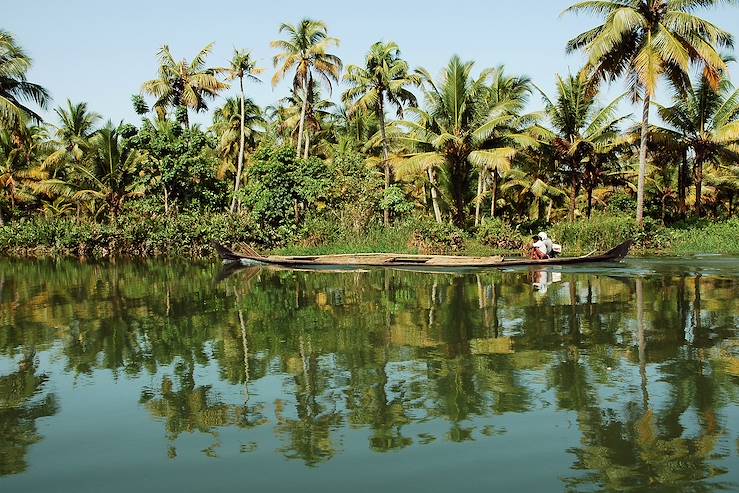
Family Adventure in Kerala
Look out for dolphins while on a sunset cruise in Cochin
15 days, from £ 2,295 to £ 3,665
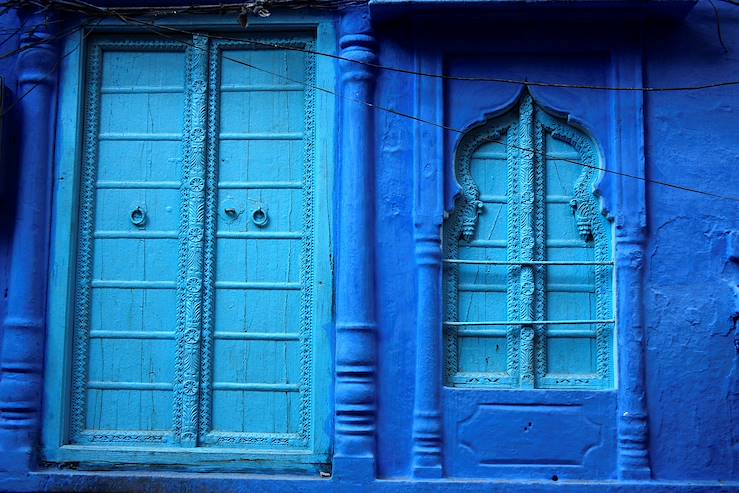
India - Delhi - Rajasthan
Rajasthan with teenagers: indian palaces, bazaars and maharajas.
Experience the sensory wonders of Delhi and tour the city by rickshaw
10 days, from £ 2,785 to £ 4,440
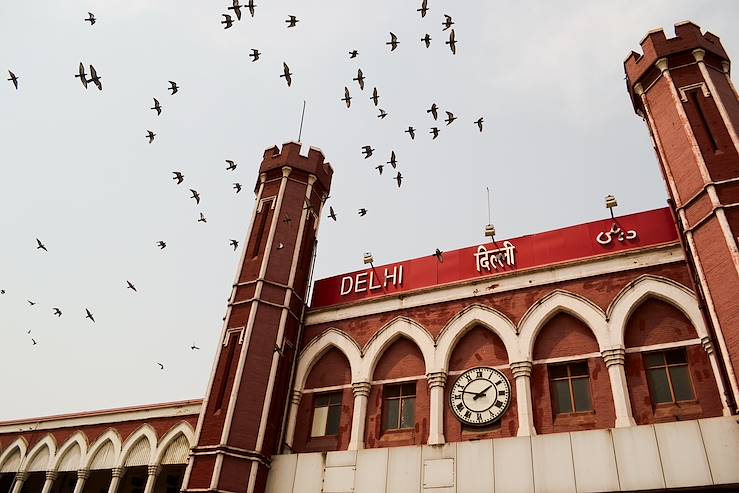
Delhi - Agra - Jaipur - Jodhpur - Udaipur - Delhi
Discover rajasthan by train: from delhi to udaipur.
Travel First Class by train through Rajasthan
11 days, from £ 2,820 to £ 3,910
Understanding your Needs
Our team of destination experts will start by getting to know you and your unique requirements for your holiday
Personalisation
We work with you to build an ultra-personalised holiday itinerary with your choice of accommodation, experiences and activities
Our Services
All of our holidays include little extras designed to make a big difference to your trip, from fast-tracking you through airport check-in and security to our network of local concierges.
+ 44 (0) 20 3958 6120
Your personal information will be collected by Qwikcilver for the purchase of the gift voucher. Do you want to continue?
Membership ID:
- Main Menu ×
- Search Flights
- Corporate Travel Programme
- Group Booking
- Special Offers
- Travel Insurance
- Flight Schedule
- Check In Online
- Manage Booking
- Seat Selection & Upgrades
- Self-Service Re-accommodation
- Request Refund
- Flight Status
- Nonstop International Flights
- Popular Flights
- Partner Airlines
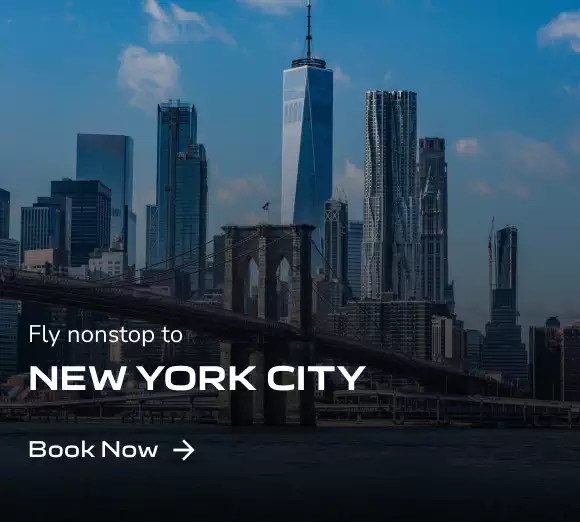
- Baggage Guidelines
- Airport Information
- Visas, Documents and Travel Tips
- First-time Travellers, Children and Pets
- Health and Medical Assistance

- At the Airport
- Transforming Experiences
- The Air India Fleet

- About Flying Returns
- Sign In/Sign Up
- Our Partners
- Family Pool
- Earn Points
- Spend Points
- Upgrade Cabin Class
- Points Calculator
- Customer Support

What are you looking for?
OCI Cardholders
Do you hold an oci card.
While your passport is the primary travel document, an Overseas Citizen of India (OCI) card is more like a lifelong visa. Since the OCI cardholders are not considered Indian citizens, they must have a valid passport during their stay in the country.
What you need to keep in mind
- The government of India has done away with the 'U' visa sticker on the passports of OCI cardholders. Immigration authorities shall not insist on producing foreign passports containing the 'U' visa sticker from OCI cardholders entering or exiting India. They will be given immigration clearance based on their valid foreign passport and OCI Registration Certificate (OCI booklet, also known as OCI card).
- In cases where the applicant appears different than on the OCI card owing to age, cardholders aged 20 years or younger must renew their card each time a new passport is issued and once after completing 50 years of age.
- For an OCI cardholder who is 21 to 49 years of age, re-issuance of OCI card registration is optional each time a new passport is issued. Applicants wishing to use this service can apply online under the OCI miscellaneous services.
- In case of a change in nationality of OCI cardholders, they can enter or exit India on the strength of their OCI card and a valid passport of the new nationality. This rule does not apply to Pakistani and Bangladeshi passports. The OCI cardholder must update the new nationality through miscellaneous services.
Recent updates and news for OCI cardholders
For the most recent updates on OCI terms and conditions, please refer to the following links:
Bureau of Immigration – Overseas Citizen of India (OCI) cardholder
Ministry of Home Affairs – Overseas Citizen of India (OCI) cardholder

IMAGES
VIDEO
COMMENTS
All U.S. citizens need a valid passport as well as a valid Indian visa or an Overseas Citizen of India (OCI) card to enter and exit India for any purpose. ... Train Travel: India has the third largest rail network in the world, and train travel in India is generally safe. Nevertheless, accidents and on-board fires are sometimes caused by aging ...
India Entry Requirements - Required Travel Documents for Travel to India. U.S. citizens, including U.S. government officials, must have a valid passport and valid Indian visa to enter and exit India. Visas must be granted by the Indian Embassy or consulate prior to travel, and cannot be secured upon arrival.
A. Overseas Citizen of India (OCI) Cardholders. All OCI/PIO card holders are permitted to travel to India irrespective of their nationalities. It may be mentioned that the Government of India has also allowed extension till 31 December, 2021 for re-issuance of OCI card. Further, there is no need to carry the old passport on which the OCI was ...
Countries with a 3-Month Passport Validity Requirement. Again, passport validity is a critical factor for anyone planning international travel. Many European countries that are part of the Schengen Agreement require passports to be valid at least three months after an intended date of departure, including France, Germany, Italy and Spain among ...
Frequently Asked Question (FAQs) on Passport. A. GENERAL . Q: An Ordinary Indian Passports booklet contains how many pages ? A: An ordinary passport has blue cover, and consists of 36 or 60 pages. It is valid for 10 years from the date of issue and can be renewed for another 10 years.
Asked Question (FAQs) on PassportA. GENERALQ: How do I apply f. r. Re-issue of Indian Passpor. A. Please follow these steps. Visit CKGS website (https://passport.in.ckgs.us) Apply online for reissue of Passport Pay required fees online & Submit your application Print submitted copy of application Submit physical copy of application along with ...
In case of minors, the validity of passport is restricted to 5 years or till they attain the age of 18, whichever is earlier. But the minors between 15 to 18 years of age can apply either for a 10-year validity passport or for a passport which is valid till they attain the age of 18 years. Different fees are applicable for different validity.
Yes. The passport is valid for entry into India till the day its valid (the midnight of it, to be precise); and you are arriving well before its expiry. Transit in Doha does not require a visa. If you have an extremely long transit, the airline will arrange for accommodations and any associated visas.
Q: I am Indian Passport holder and my passport has less then 6 months validity, Can I travel with this passport ? A. For any international travel Passport Must by valid for minimum 6 months, so you can not travel on this passport. Q: I am an Indian Citizen, at present living in New Jersey, USA, last week my visa status has
Travelers to India -- unless carrying an Indian, Nepalese, or Bhutanese passport -- should apply for a tourist visa from their nearest Indian Consulate or High Commission. This is valid for multiple entries for a prestipulated period of time from the date of issue (this will depend on your travel dates and the country in which you are applying).
Travel to India with an Indian passport that's valid for less than 6 months. If you're an Indian passport holder, you can visit India without applying for a visa. However, even for Indian citizens, the country has a 6-month passport validity rule. That means if your passport is valid for less than six months, you'll be denied entry to India.
Mobile Passport Control; Canada and Mexico Travel; Know Before You Go; Naturalization Resources; International Visitors. ESTA; ... Six-Month Validity Update. Attachment Ext. Size Date; Six-Month Passport Validity Update PDF: 159.38 KB 03/18/2024 Last Modified: Mar 18, 2024.
India Travel Document Requirements. Foreign visitors are required to have both a valid passport and a travel visa when visiting India.. A valid passport with at least 6 months of validity and at least 2 blank pages is one of the required travel documents to enter India. Regulations change occasionally so it is always best to verify the newest updates before your trip.
Passports Valid for Less than Six Months. Indian citizens travelling on Passports which may expire in less than six months should renew their passports, before any travel (except for Indian national traveling from Singapore to India), to avoid inconvenience at immigration check points. Exhaustion of Passport Pages
Question - What is Re-issue of passport on expiry of full validity passport? ... Use of Indian Passport for travel to India after acquiring any foreign nationality is an offence to be prosecuted under Passport Act 1967. After acquiring a foreign citizenship, you do not remain an Indian citizen and need an Indian visa to visit India. ...
Australian passport validity for travel. Technically, Australian passports are valid till their expiry date.However, most countries require between three to six months passport validity from your return date to Australia, even if your trip to the destination is only a week or two.So as a rule of thumb, it's essential to renew your passport at least six months before its expiry date.
The 6-month passport rule states that your passport must be valid for another six months before you depart for international travel. Depending on which country you are travelling to, the six-month period may begin from the date you leave that country or the date you arrive. However, not all countries follow the six-month requirement; some ...
Passport Validity for India Travel. Passports must be readable by machines and have two stamp-free, completely clear pages. Foreign nationals who arrive in India holding a non-machine-readable passport will be denied entry. Guidelines for passport validity to enter India aren't clear, so to avoid immigration issues, ensure your passport is ...
The government of India has done away with the 'U' visa sticker on the passports of OCI cardholders. Immigration authorities shall not insist on producing foreign passports containing the 'U' visa sticker from OCI cardholders entering or exiting India. They will be given immigration clearance based on their valid foreign passport and OCI ...
There are 2 aspects . 1. Can your daughter travel - At times airlines and immigrations authorities are particular about validity of passport being at least 6 months. Your daughter could face issues. Better to get the passport re-issued. 2. Validity of OCI - While the Indian government requires that OCI has to be issued afresh along with passport renewal for holders less than 20 years of age ...
Travel to India with Indian passport having less than 6 months validity (2 answers) Closed last year. I am an Indian citizen working in Abu Dhabi. I plan to visit my family in India for one month in June 2023. My passport expires on 25th Sept 2023, appx 3 months after my arrival. ... As your passport is valid India is going to let you in. As ...